
Importance of academia-industry collaborations
With the aim to take collaboration between universities and the industry to the next level and to educate the academics and students on the importance of academia-industry linkages, UTAR Centre for Corporate and Community Development (CCCD) successfully conducted a live webinar titled “Challenges and Expectations in Academia and Industry Collaboration” via Microsoft Teams on 4 June 2020.
Besides educating the academics and students on the importance of academia-industry linkages, the live webinar also aimed to discuss the possible ways on how to initiate and strengthen the ties between the University and relevant industry partners.
The live webinar kicked off with an introduction about the increasing importance of academia-industry collaborations especially in the areas of curriculum development, teaching and learning, research and development, hands-on training and etcetera. The moderator of the live webinar Faculty of Engineering and Green Technology (FEGT) lecturer Assoc Prof Dr S. Sumathi, introduced the panellists, which consisted of UTAR President Ir Prof Dr Ewe Hong Tat, FEGT lecturer Assoc Prof Dr M. Yamuna and Lee Kong Chian Faculty of Engineering and Science Head of Department of Electrical and Electronic Engineering Assoc Prof Ir Dr Chang Yoong Choon.
Dr Sumathi kick-started the live webinar by asking the panellists to share the advantages and the impacts of academia-industry collaboration, the ways to strengthen the collaborative ties between an education institution and industry partner as well as the possible steps to develop and launch the potential collaborative opportunities.
In his talk, Prof Ewe introduced the participants to the vision and mission of UTAR. He explained that UTAR is highly reputed as one of the fastest-growing private higher education institutions in the country, guided by its vision to be a global university of educational excellence. He added that throughout the year, UTAR has been receiving support and collaborating on educational exchange activities with more than 400 MoU partners from 28 economies.
Apart from vision and mission, Prof Ewe also mentioned that UTAR encouraged its staff and students to embrace the six UTAR philosophical values of Virtue and Morality, Knowledge and Intellect, Physical and Mental Health, Sociality and Humanitarianism, Aesthetics and Harmony, and Creativity and Innovation. In addition to that, Prof Ewe also touched on the importance of human networking. He said, “Do take the opportunity to build networks with industries, companies to find potential academia-industry collaborations. Building network with a set of potential organisations or industries with diverse relationships could engage our academics and students with industry-based knowledge and expose them to innovative ideas, healthier employees and attract top talents.
Furthermore, Prof Ewe’s talk also focused on the aspects of the technology revolution and its roles in future education. He said as we embarked on the Fourth Industrial Revolution, technology plays a central role in nearly all aspects of people’s lives. Therefore, in order to prepare the talent needed for the digital economy, education must adapt fast as the demand for digital skills is growing and evolving. Prof Ewe also emphasised on the importance of higher-order thinking skills, multiple intelligences and creativity among university students to further improve and equip themselves with the 21st-century skills. He said the key to staying competitive in this new era of innovation is the convergence of technologies like artificial intelligence, internet of things, robotics, big data analytics, brain connectome, quantum computing, 5G and etcetera. He also stressed that the Fourth Industrial Revolution needs knowledge workers with a growth mindset and empathy.
Additionally, Prof Ewe also presented the participants with knowledge economy and how it has brought changes to the way we work and live. He explained, “Knowledge economy is an economy in which the production of products and services is based mainly upon knowledge-intensive activities.” He added, “In a knowledge economy, a large portion of economic growth and employment is a result of knowledge-intensive activities and the knowledge-intensive activity involves the collection, analysis and synthesis of information. In order to attain success in a knowledge economy, it requires the commitment of both the workers and firms to continually learn and to increase their skills and expertise, which will foster innovation.” The talk also touched on the innovation ecosystems and the pace of innovation substitution.
He concluded, “Therefore, by infusing industry-based skills into education we can ensure students gain the practical knowledge to match theories and graduate with a holistic view of the specialisations. There are various benefits one can achieve through academic-industry collaborations, among them are enhancement of research and innovation through joint research projects, delivery of innovative commercial products, and improvements in teaching, learning and enrichment of students’ knowledge and their employability. By engaging with industry players, the students could acquire skills and knowledge. Meanwhile, researchers and academics will also benefit from technology transfer and commercialisation. On the other hand, via academia-industry ties researchers also get to collaborate with industry players to take their research products to commercialisation level which indeed will help the researchers to do their research and publish in journals for recognition, locally and globally.
In her talk, titled “Exploring Collaboration and Open Innovations with SMEs” Dr Yamuna explained that Small and Medium Enterprises (SMEs) in Malaysia is one of the greatest contributors to Malaysia’s economic growth. She said, “Being able to collaborate with SMEs is one of the best opportunities for an educational institution to expand their creativity and innovation in research and development.” She added, “Another factor why SME is one of the best potential industry collaborators is because SME is easily accessible and many of the SMEs are growing companies that need new ideas and innovations. Hence, partnering with education institutions will be a win-win synergy for both the university and SMEs.” Dr Yamuna explained, “Innovation is one of the keys to improve competitiveness. Therefore, knowledge and competencies developed in academic laboratories and research centres must be transformed into products and services.”
She concluded that SMEs are the best partners to work with and that it is the responsibility of every educational institution to assist SMEs in reinventing their businesses. “Academics, researchers and students may study and understand the needs and problems of the industries and start to do research to help them solve their problems. There are lots of ongoing issues faced by SMEs, among them are lack of innovations, lack of scales, lack of management skills, lack of finance and lack of costs for doing business. With that, we as researchers could help the industries by bridging the gaps with the expertise that we have in the selected fields. By doing so, we could find employment for our students, better research opportunities and at the same time tackle the problems faced by the industries.”
Meanwhile, Dr Chang in his talk explained to participants about how to build networks with industry collaborators and the importance of good network with industries. He said, “I like joining professional societies, exhibitions and fairs to build networks with potential industry players. I will use the platforms to promote my consultancy and develop a professional working relationship which could help me build academic and research collaborations.” He explained, “By networking and collaborating with the industries, researchers and academic institutions could earn a win-win situation in which knowledge transfer, internship placement and research grant could be obtained.”
He also said, “Most of the industries expect researchers from education institution to do applied research or fundamental research which could gain the industry benefits. Apart from that, some industries might focus on corporate social responsibility projects to enrich their image and branding. Meanwhile, multi-national companies would expect for fresh talents and innovations; therefore building network with companies and industries are the greatest ways to boost and expand our research and development chances as well as other potential collaborations. He concluded his talk by saying it is important to build industry-based learning and link research and teaching for a win-win situation. He added, “This integration helps universities address the research/teaching balance as a collective effort in order to create a win-win situation for students, academics and industry.”
Participated by more than 260 participants, the live webinar ended with an interactive questions-and-answers session between the speakers and participants.
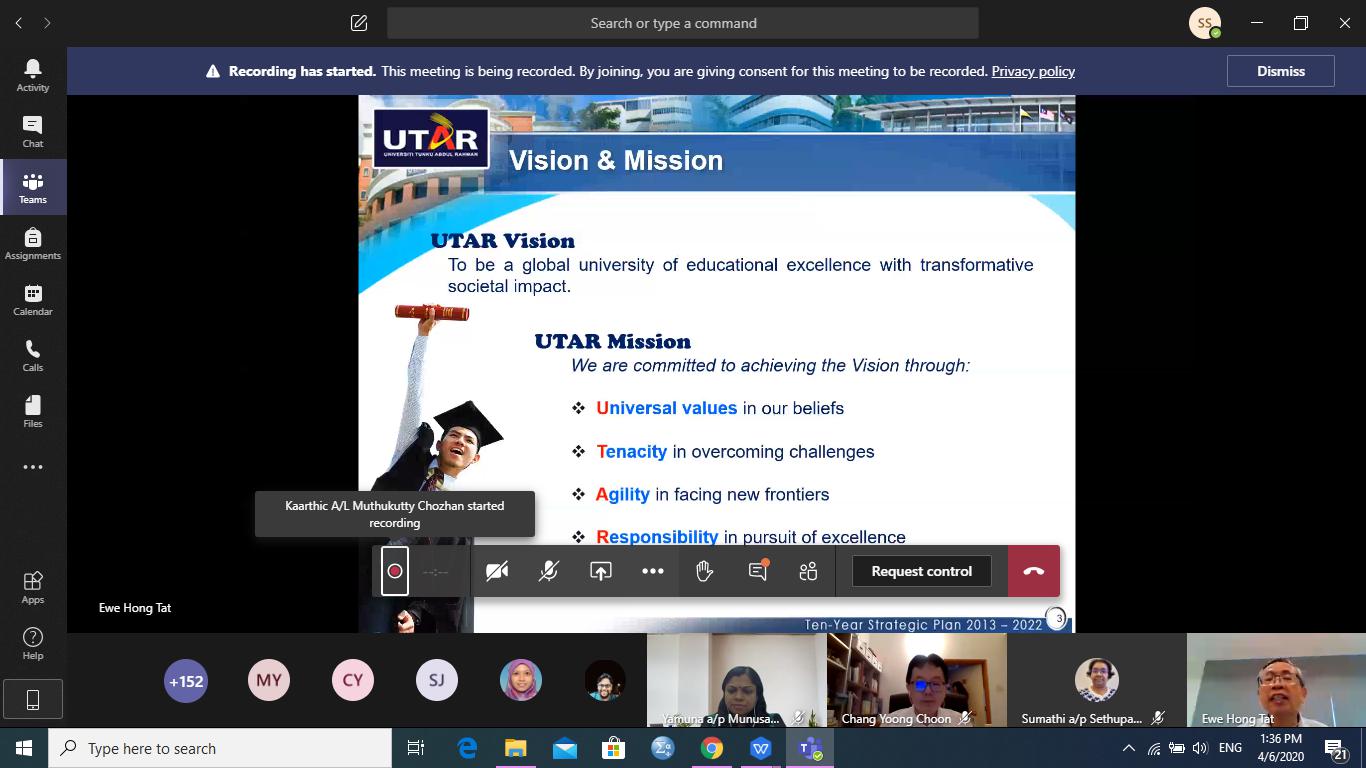
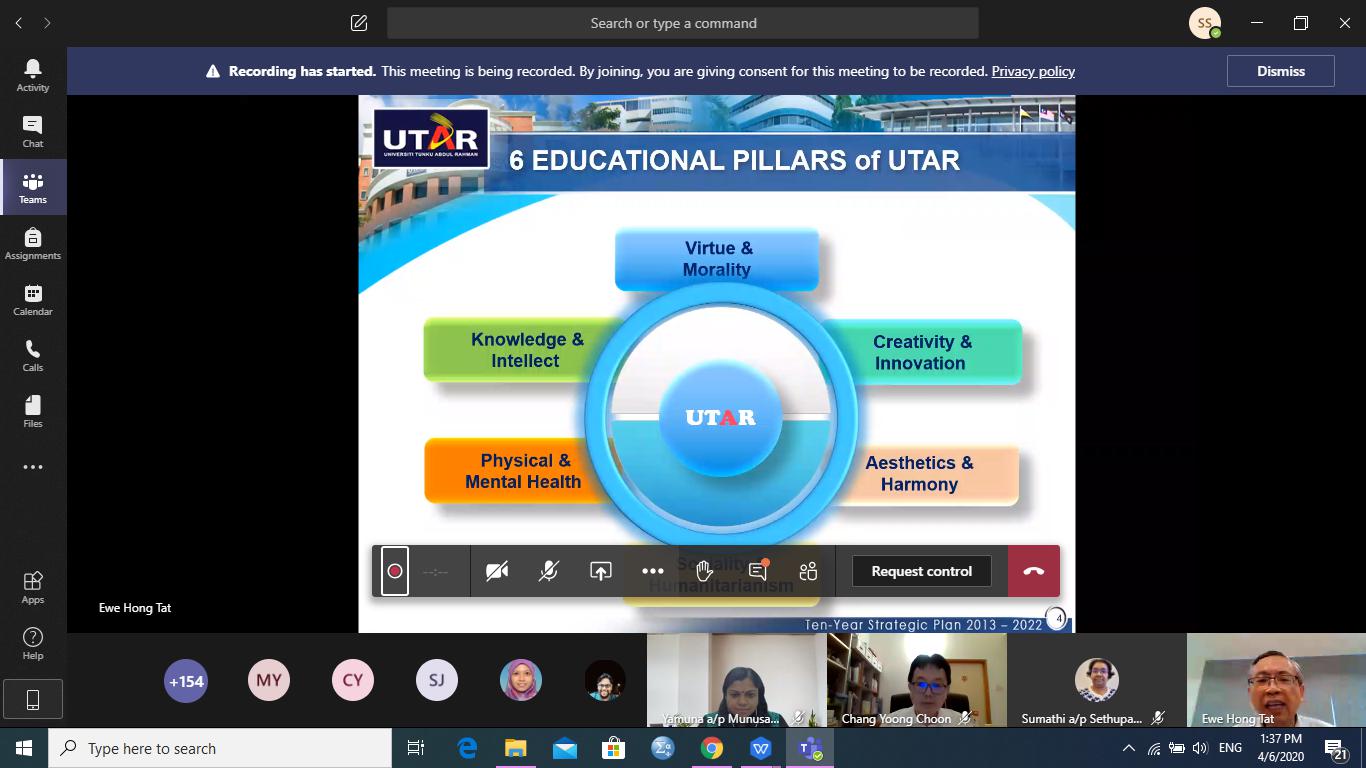
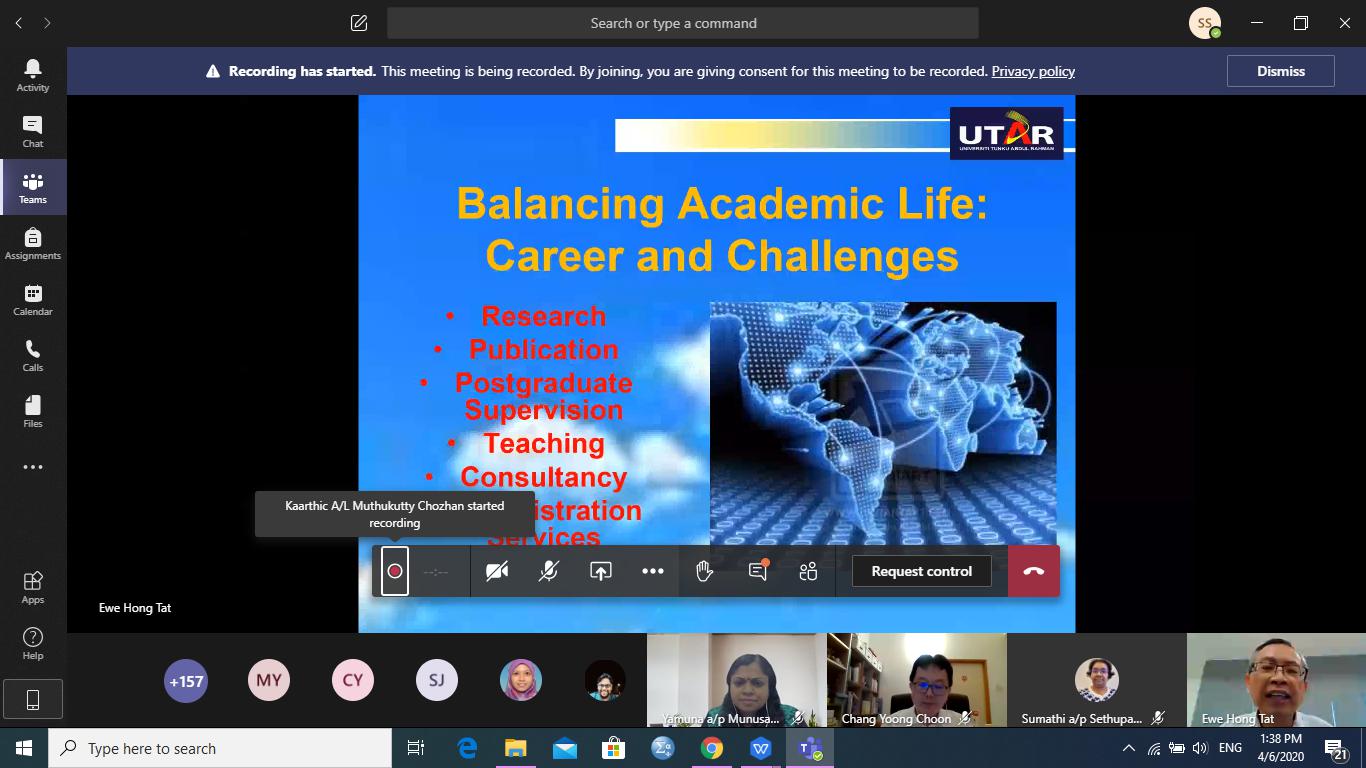
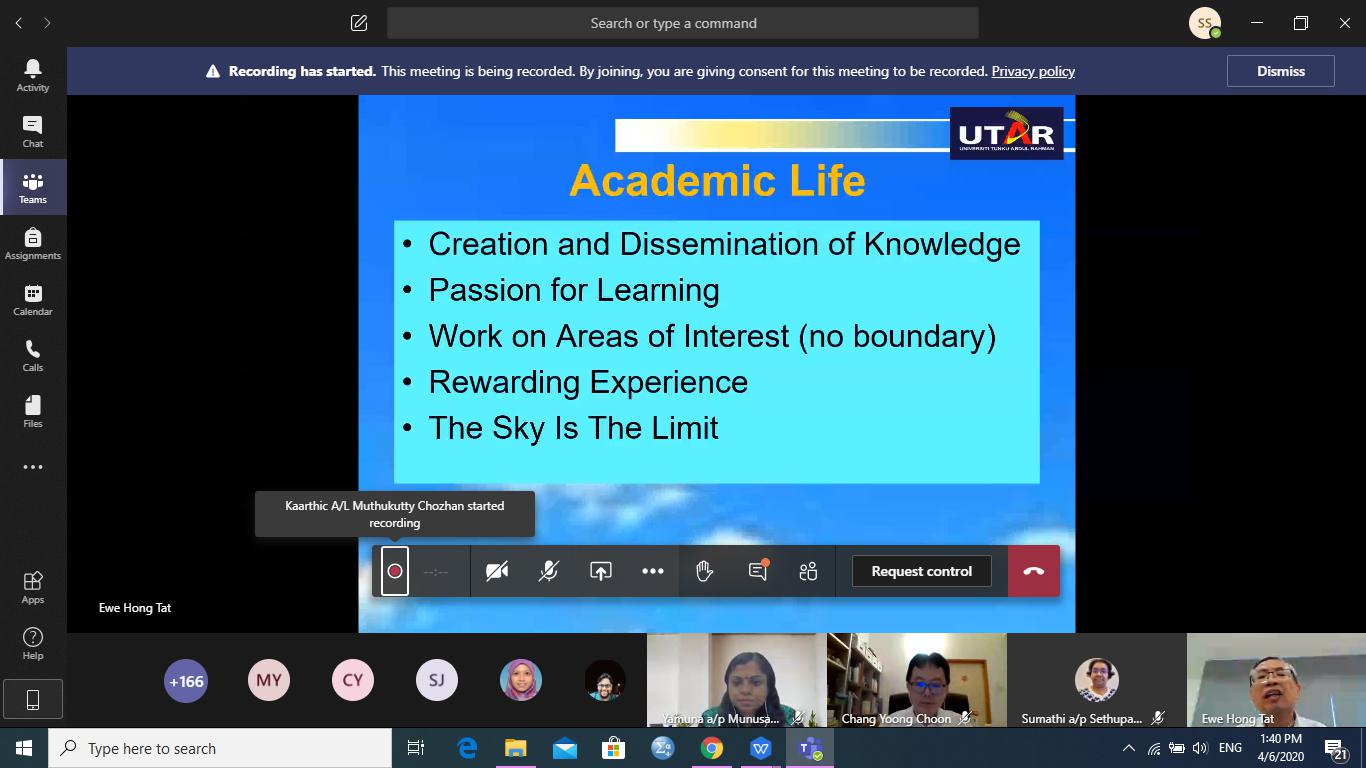
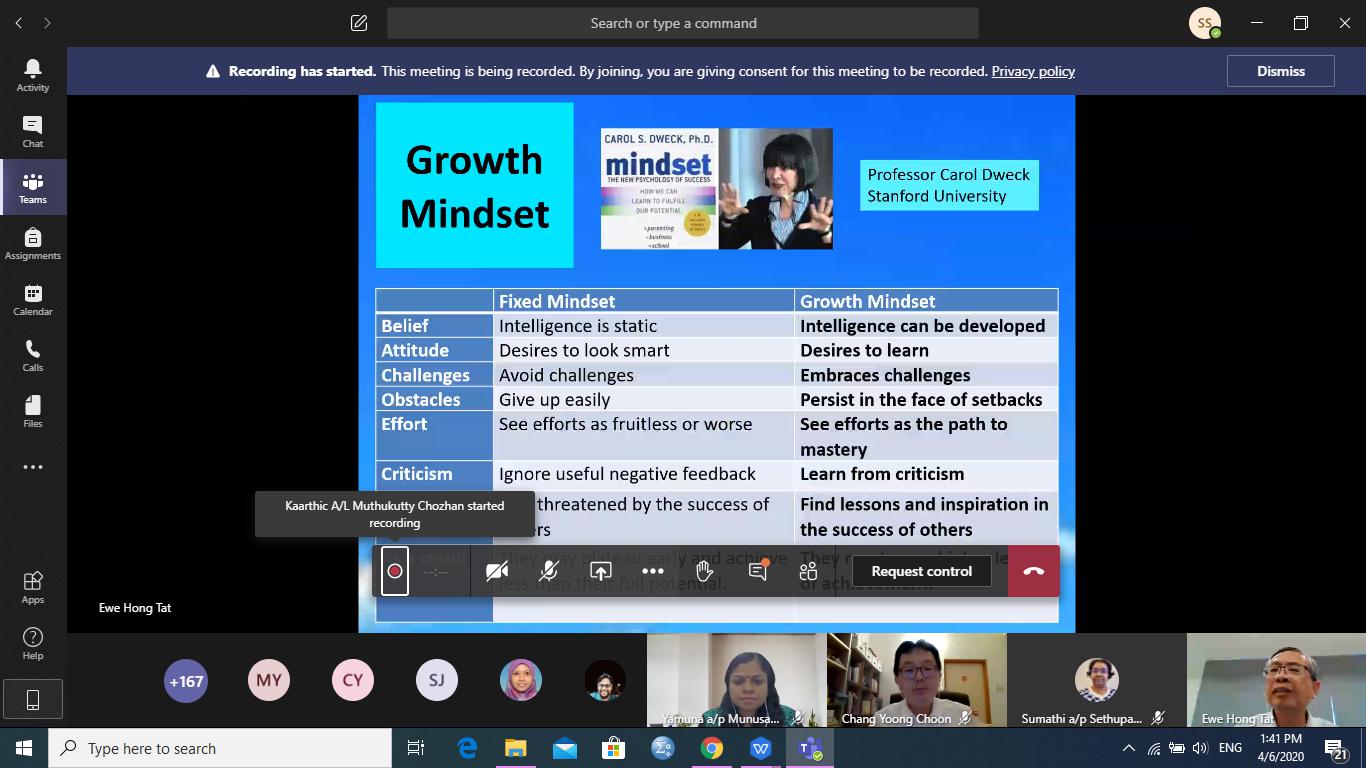
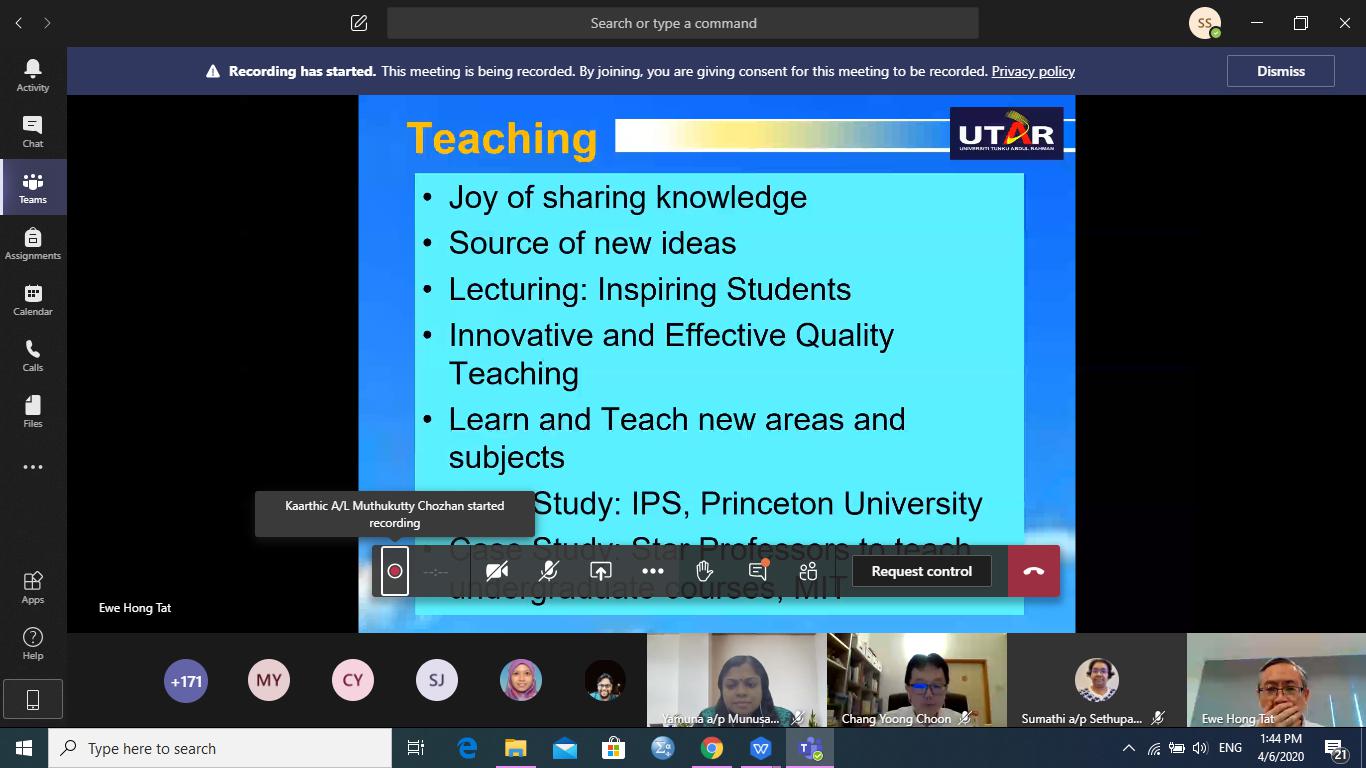
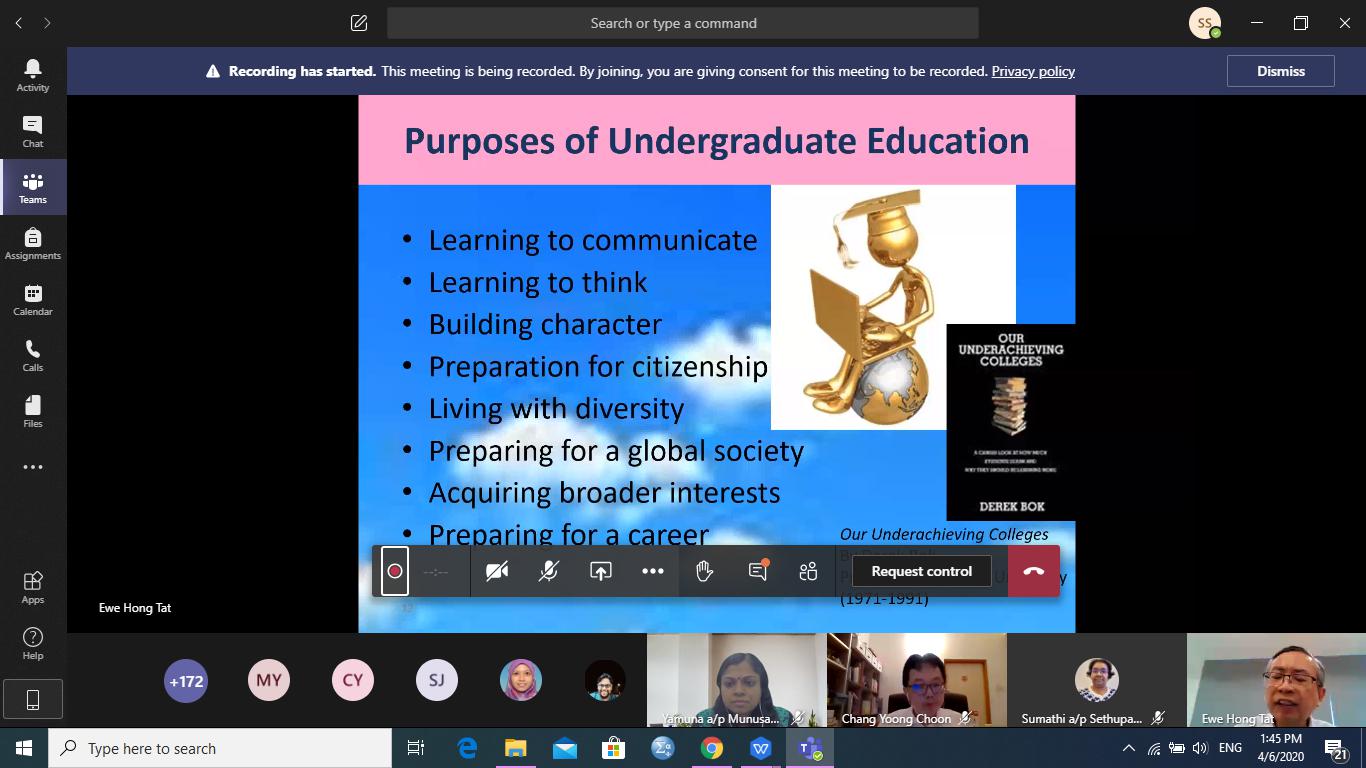
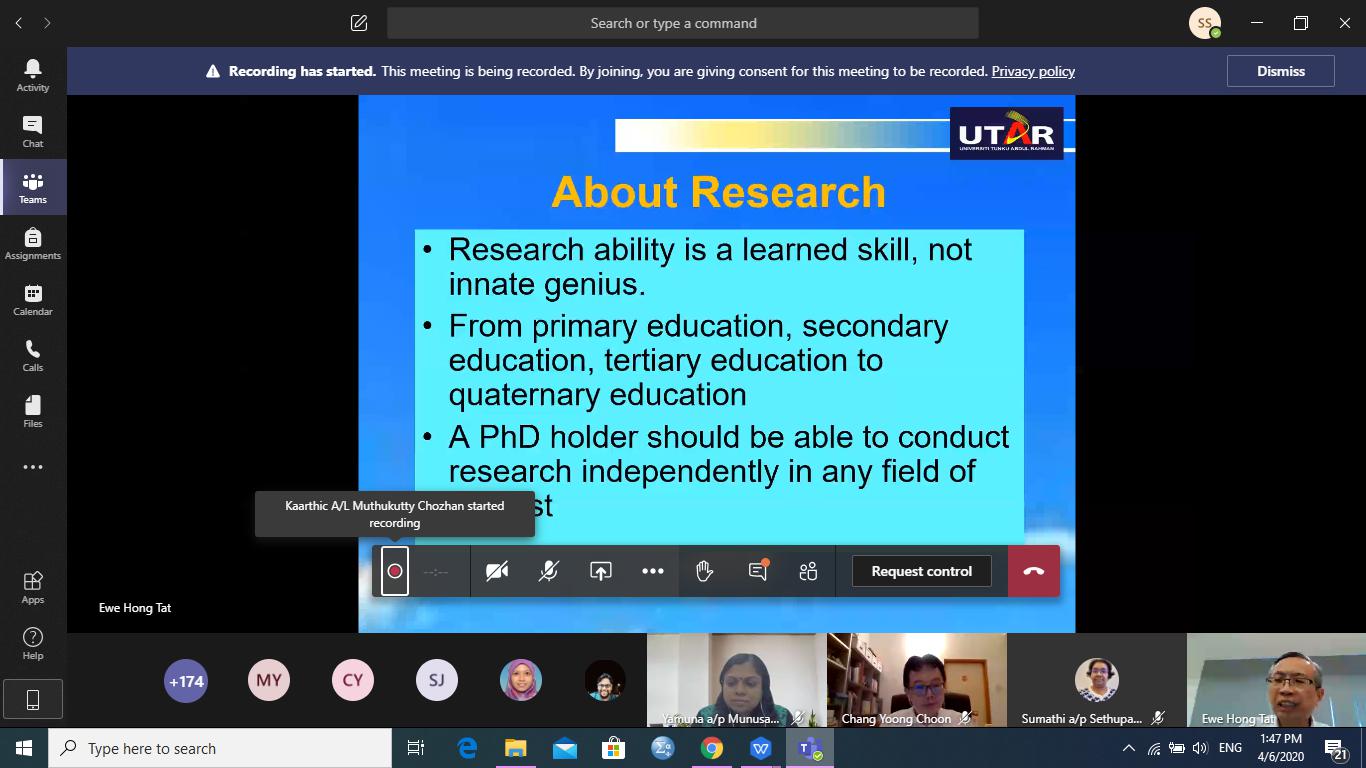
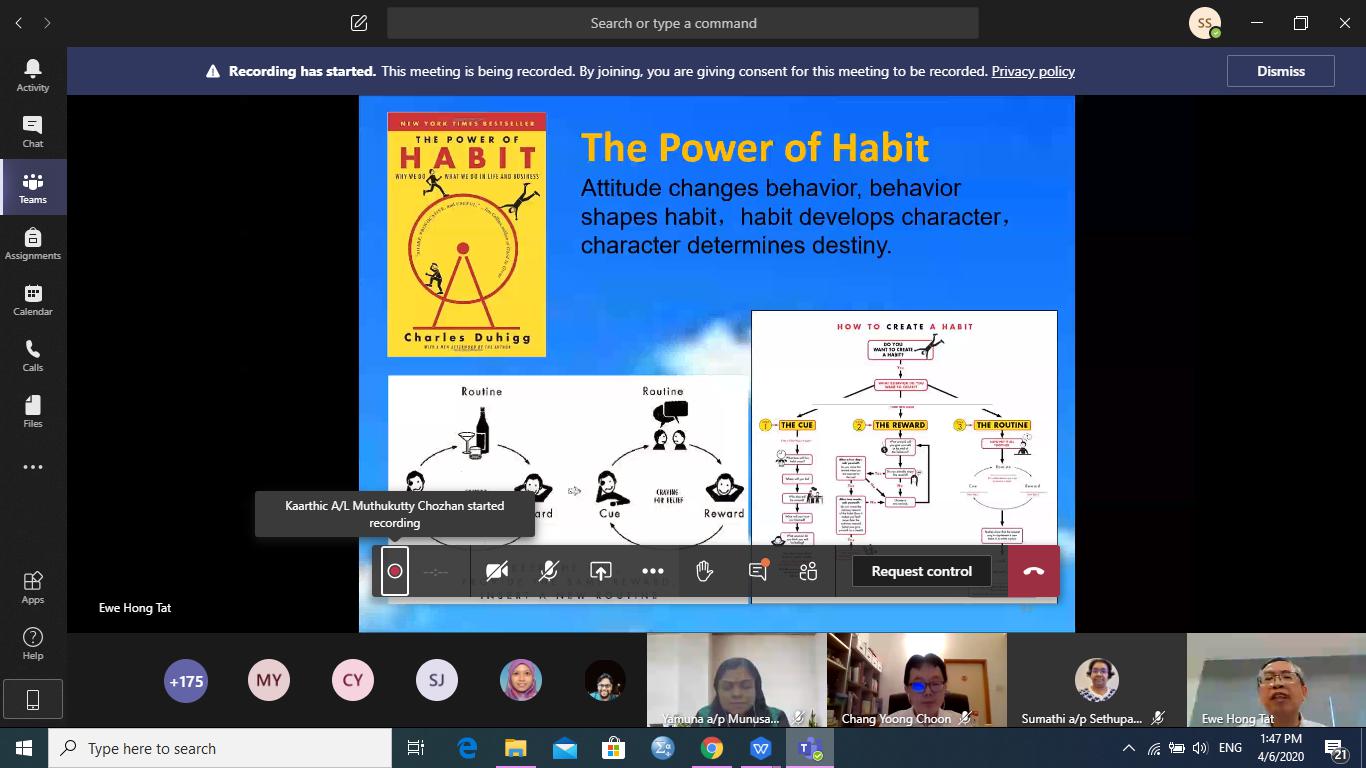
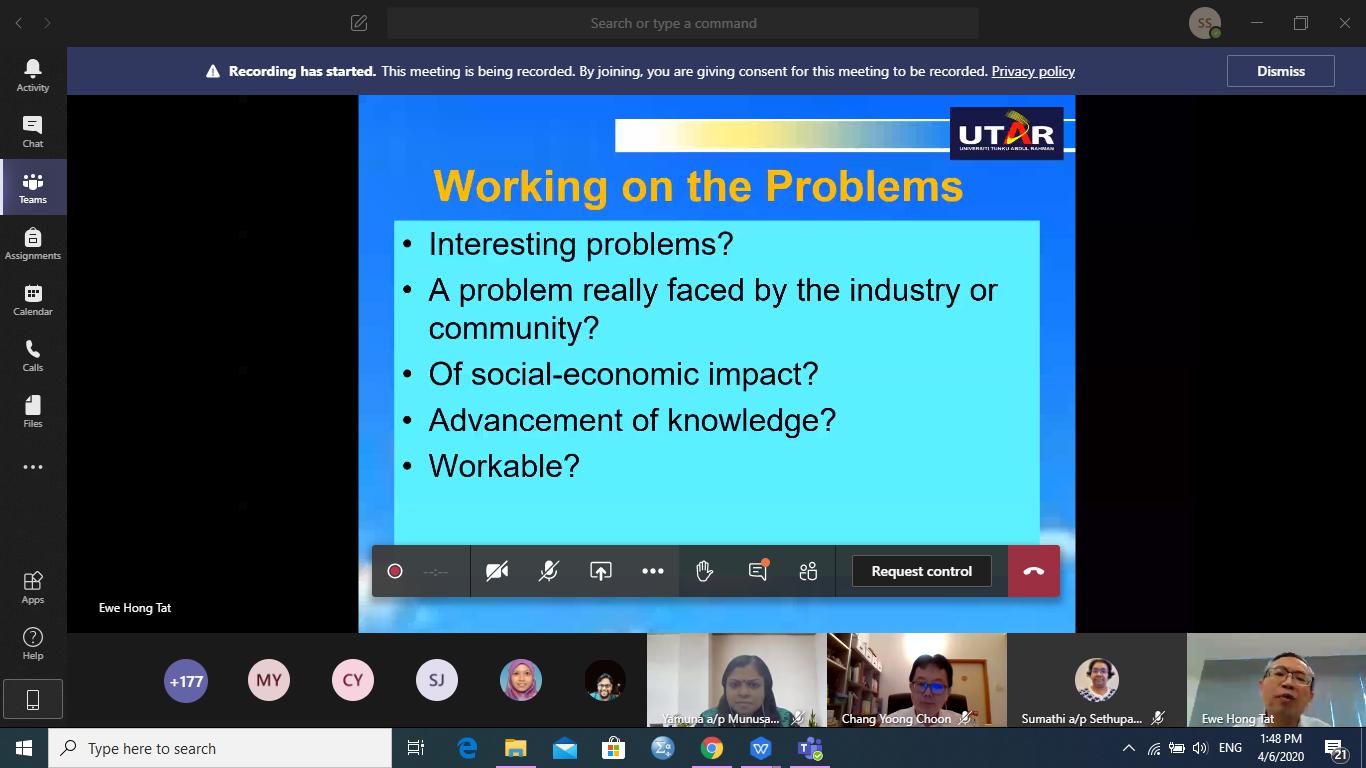
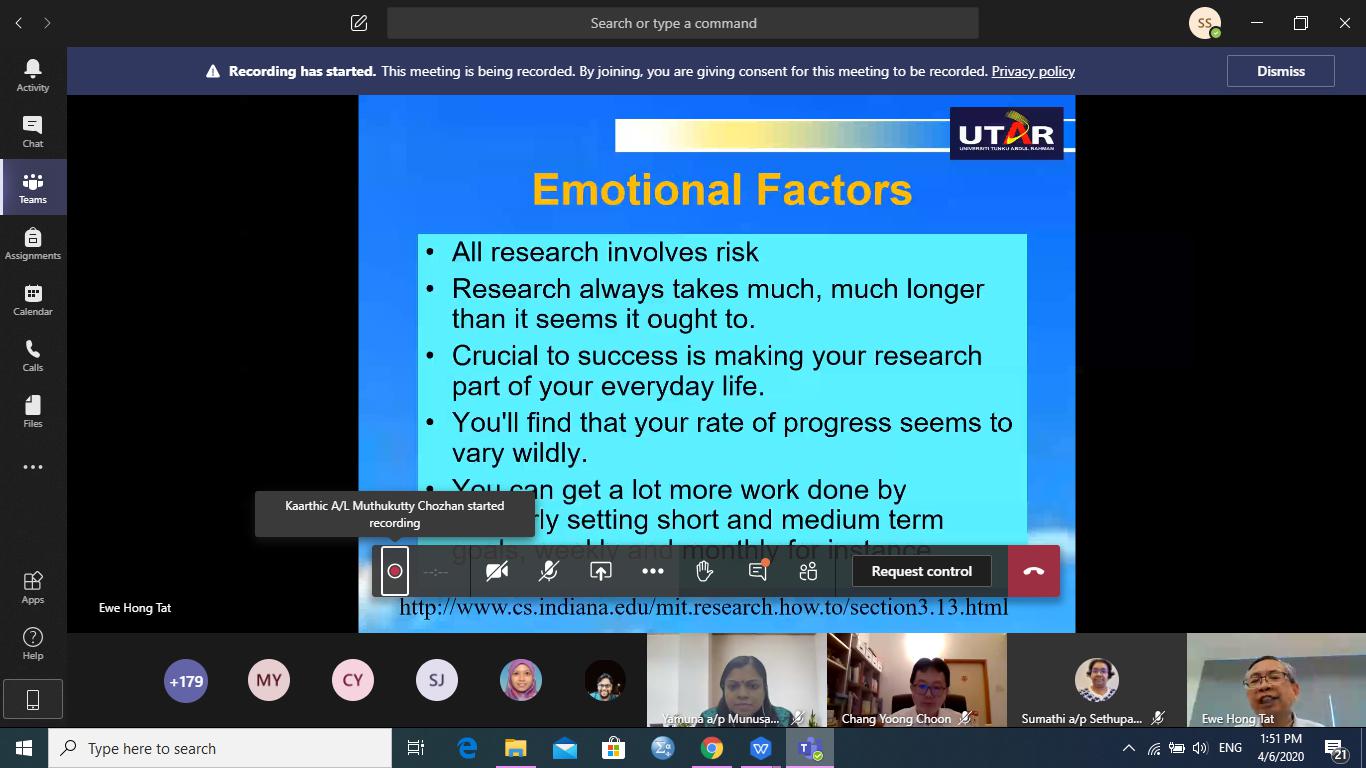
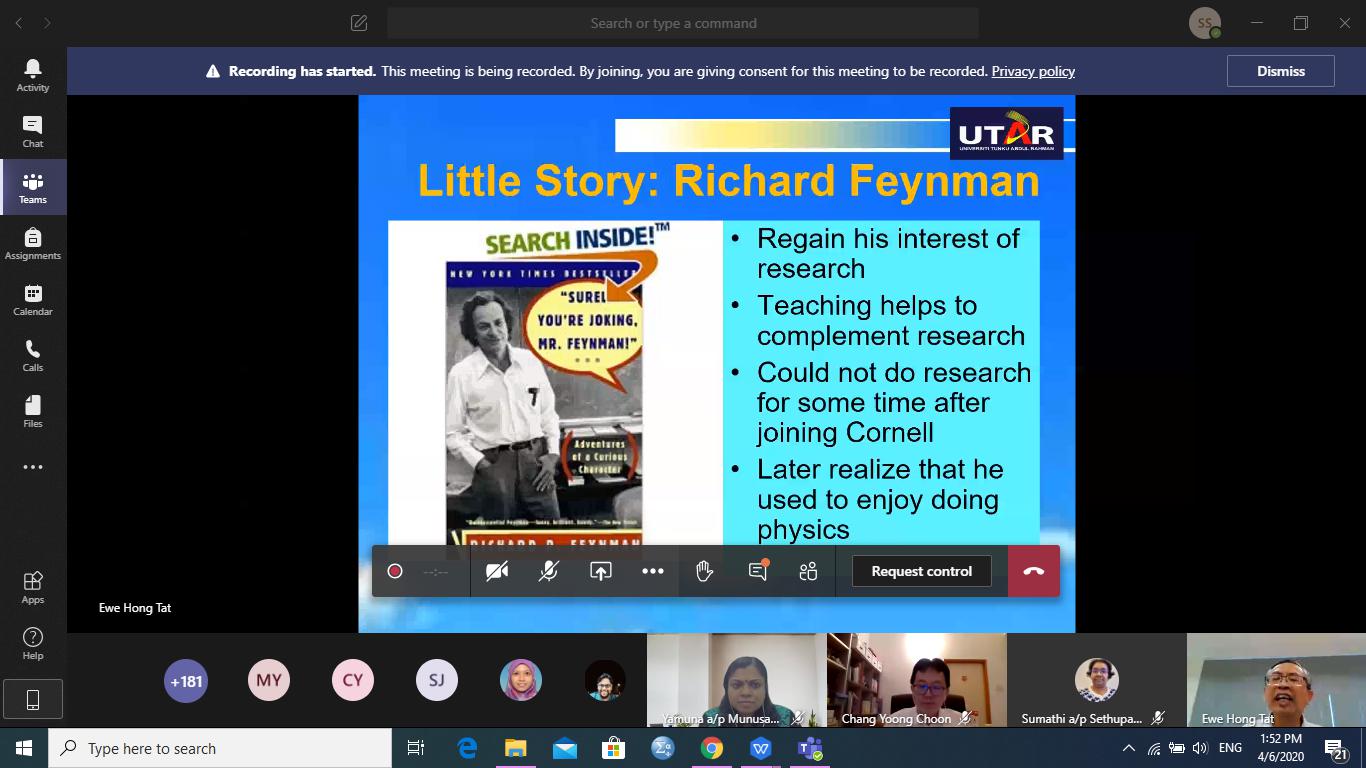
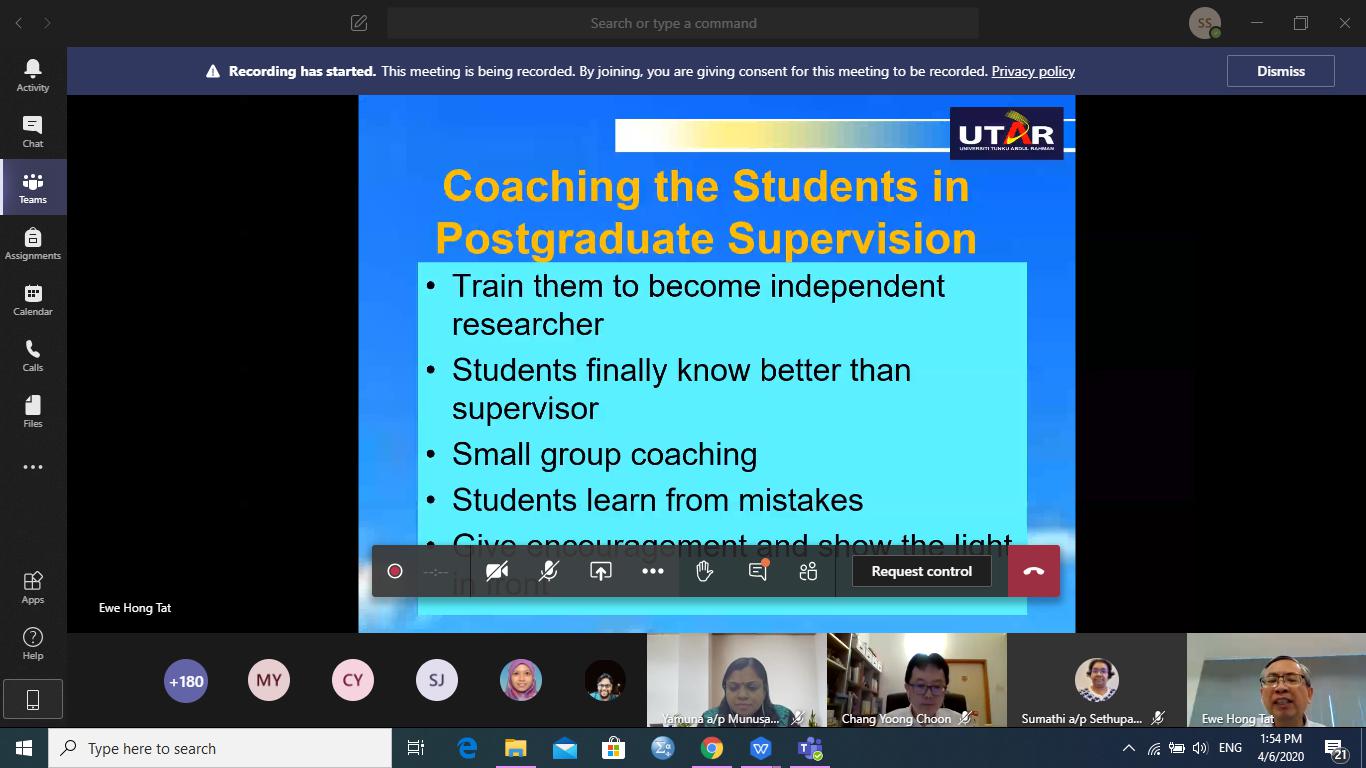
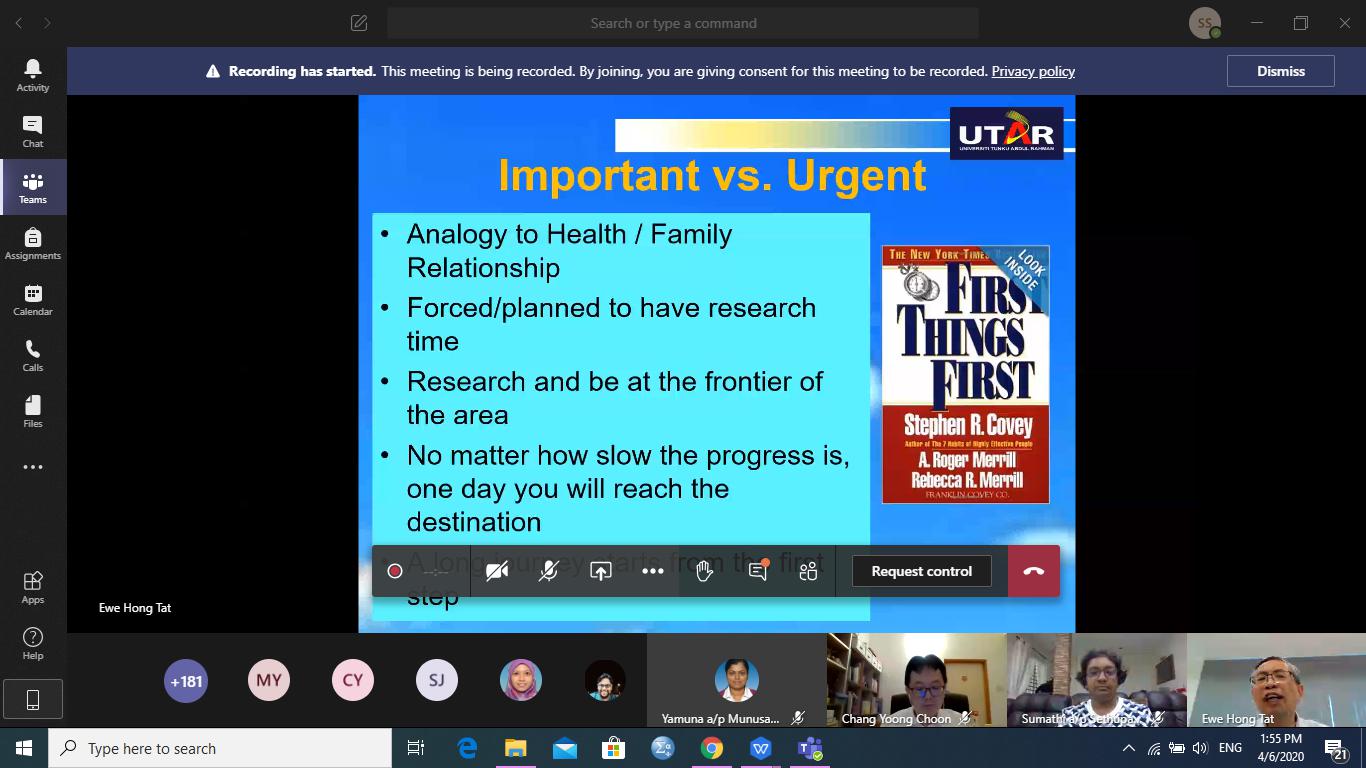
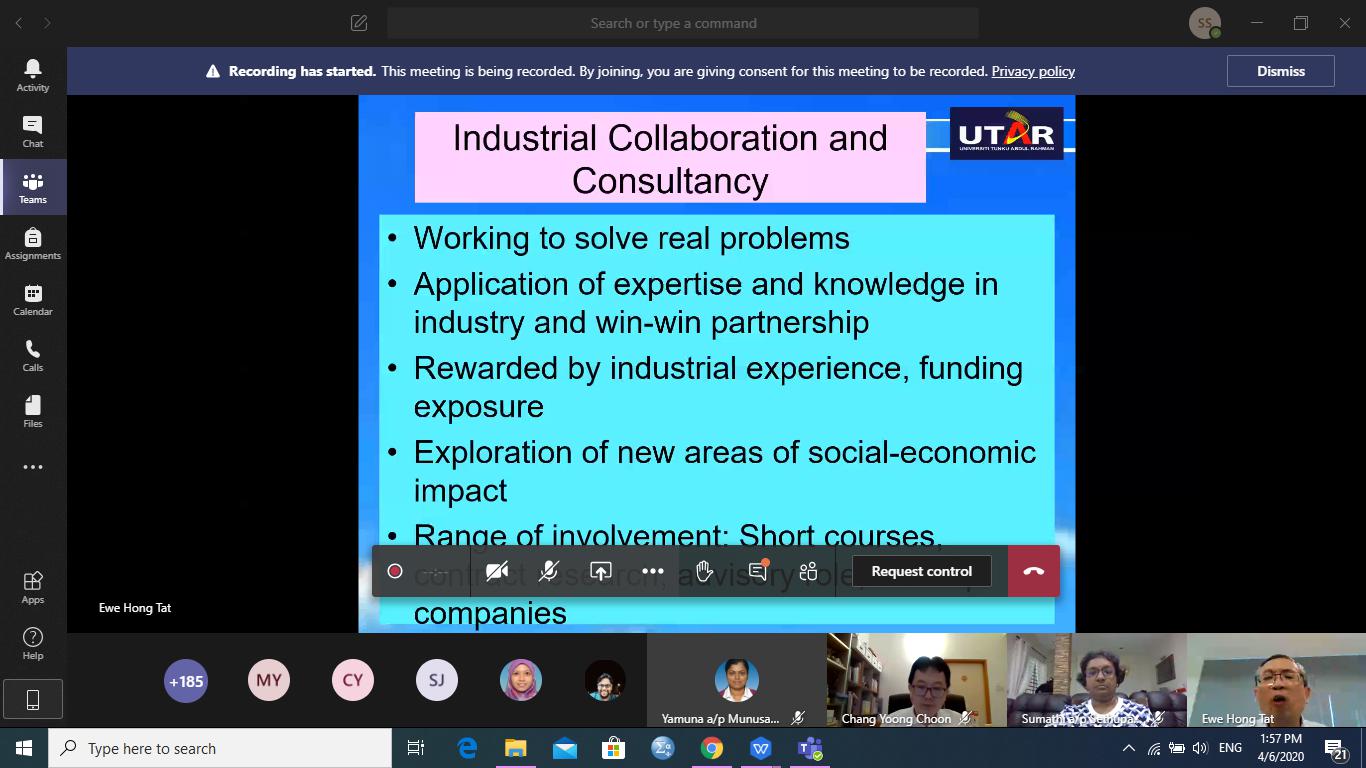
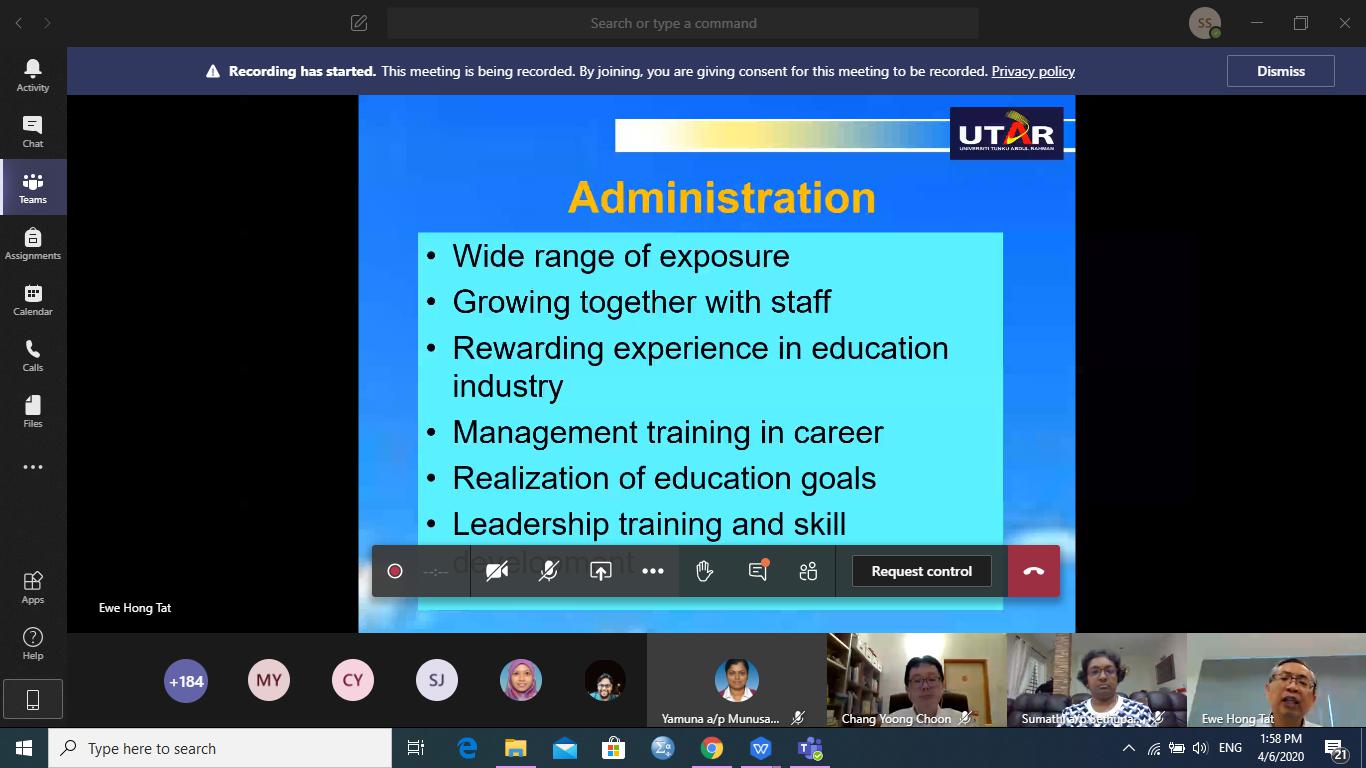
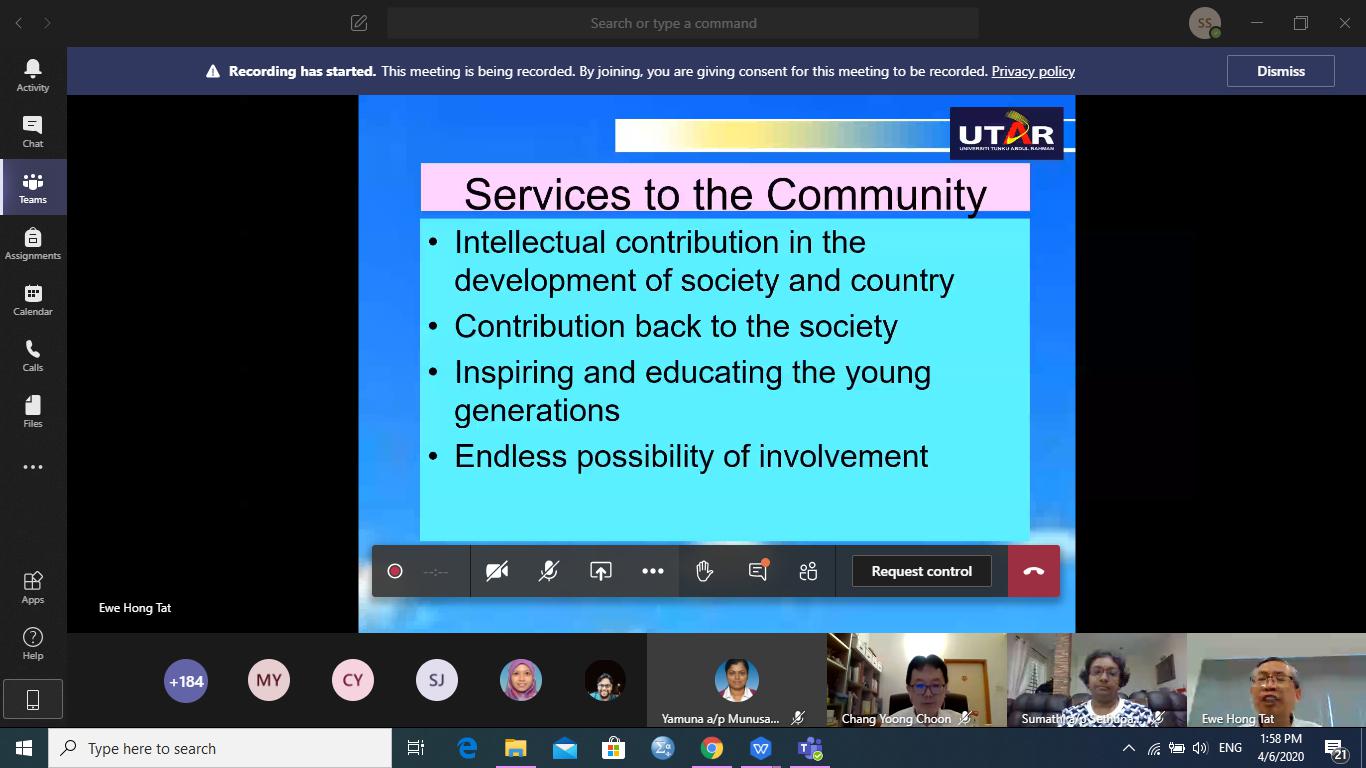
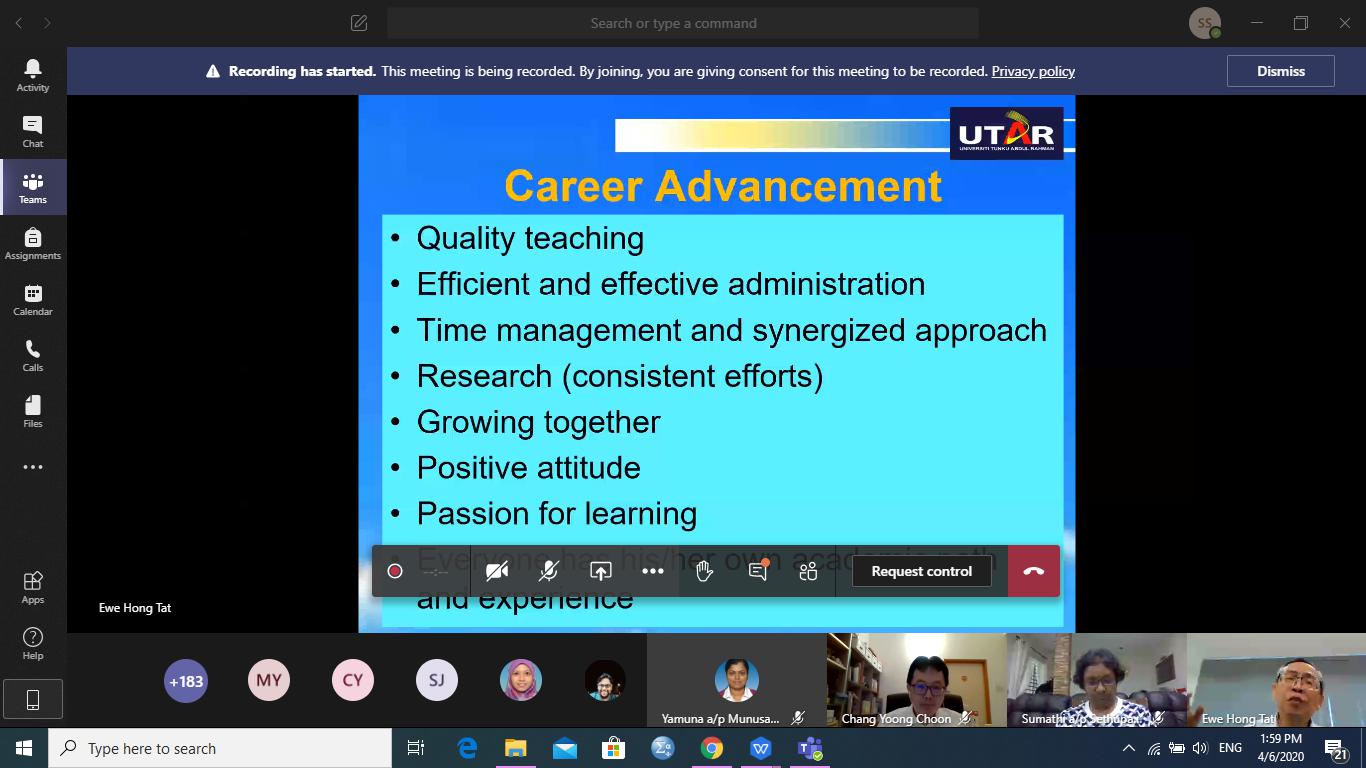
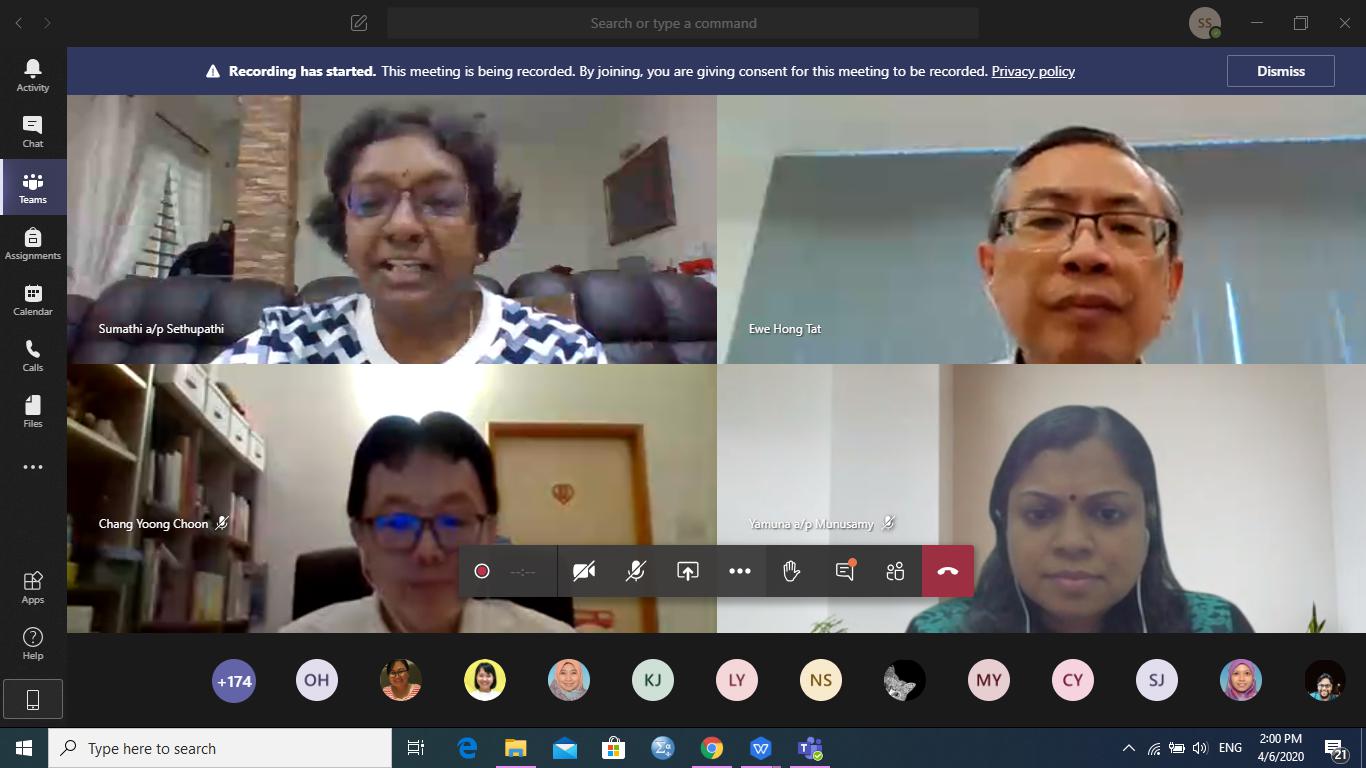
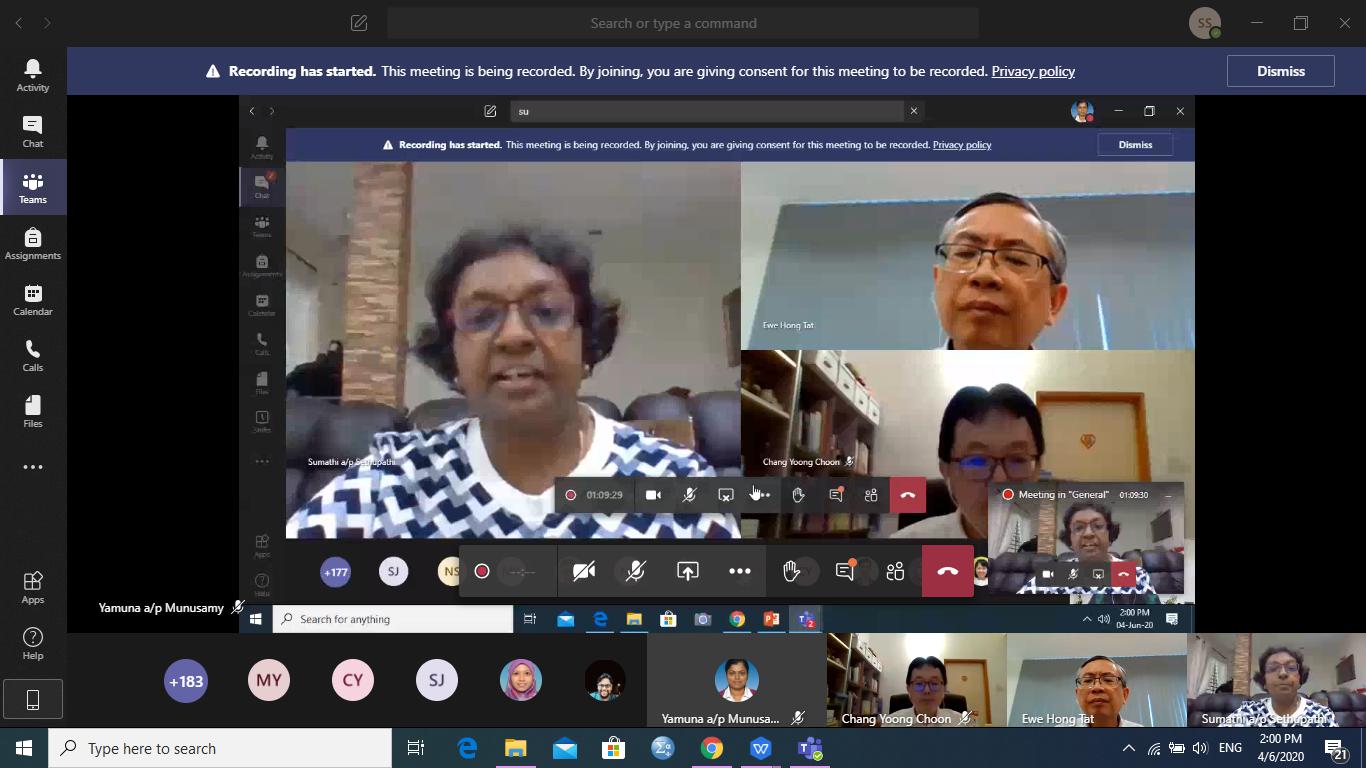
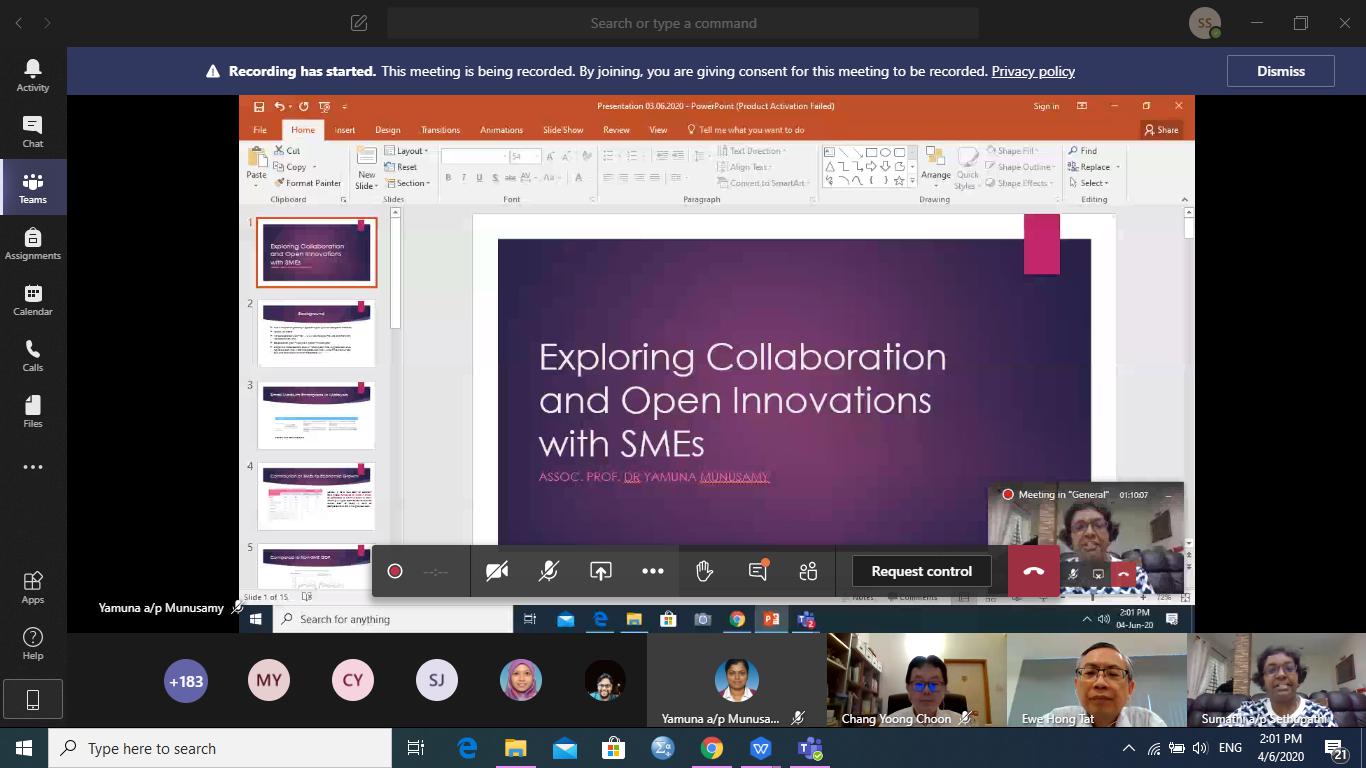
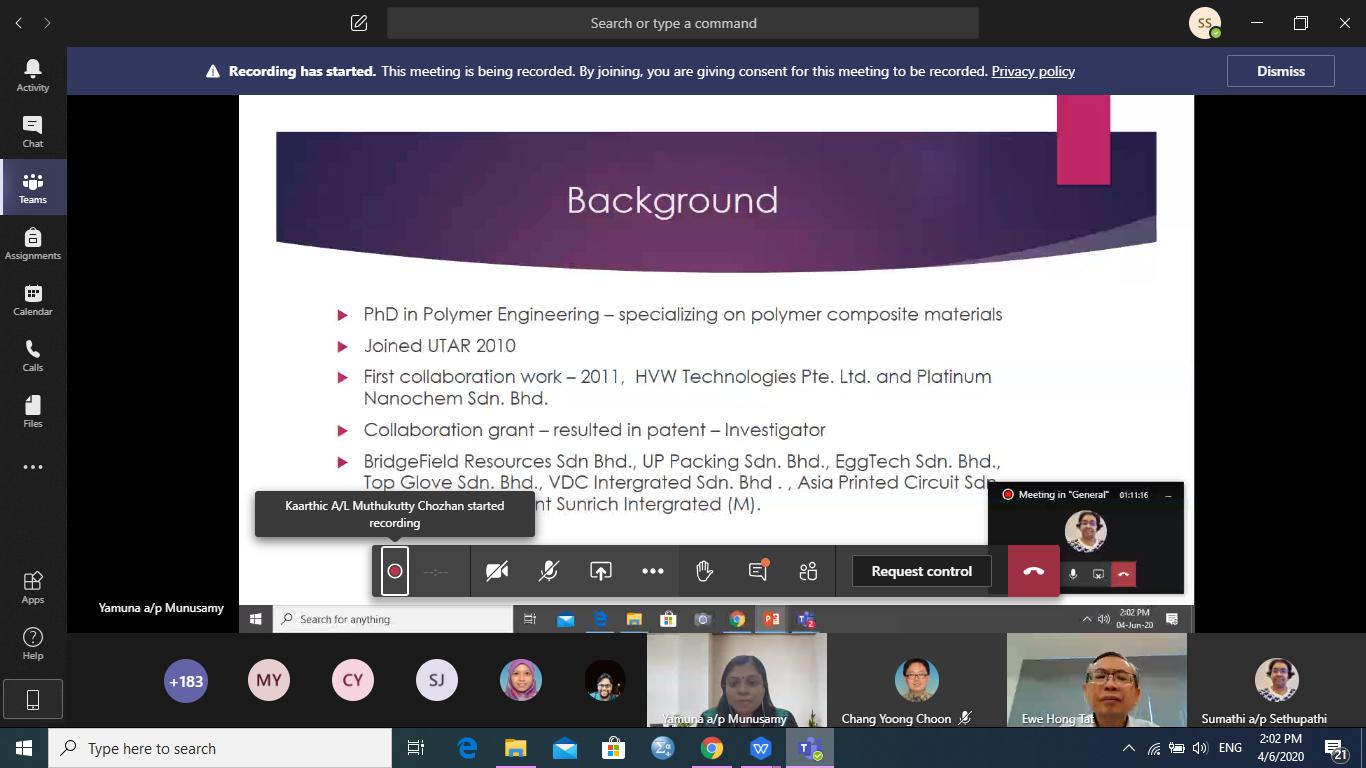
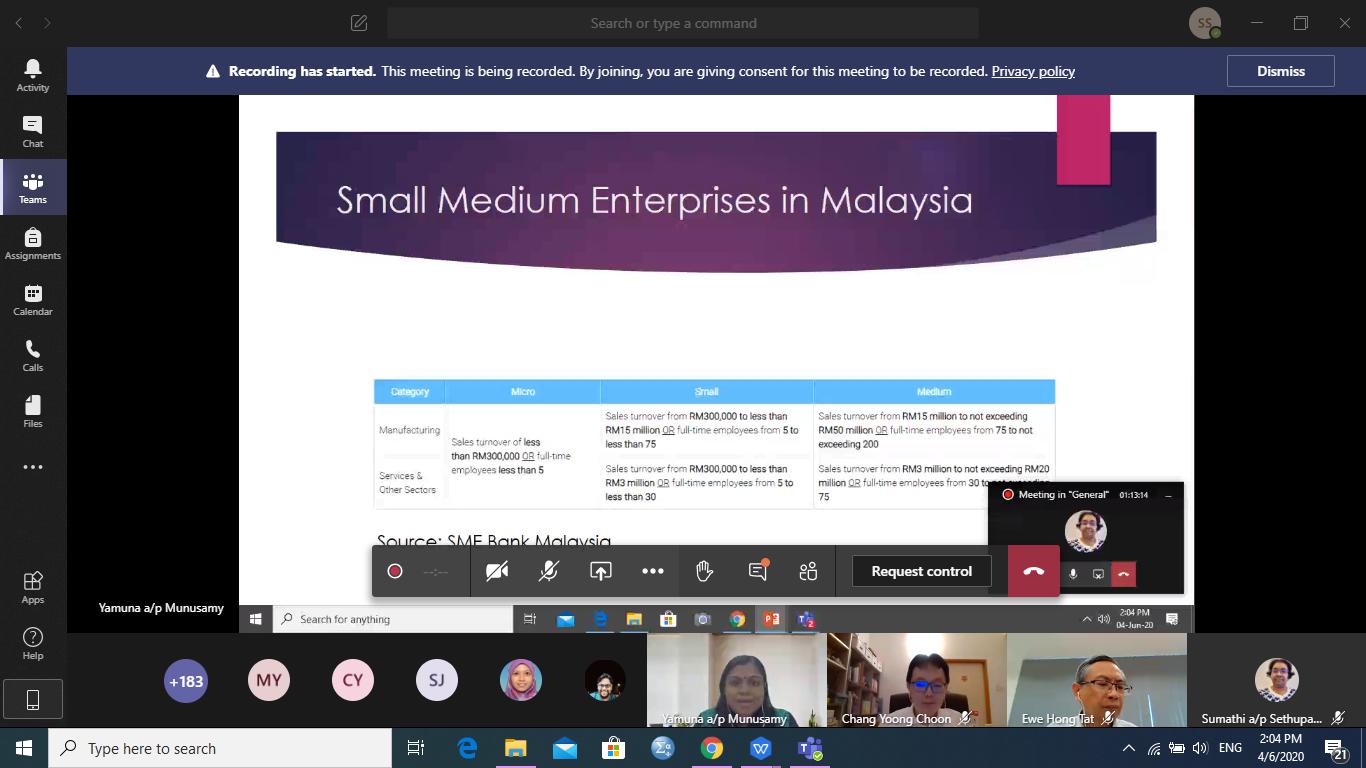
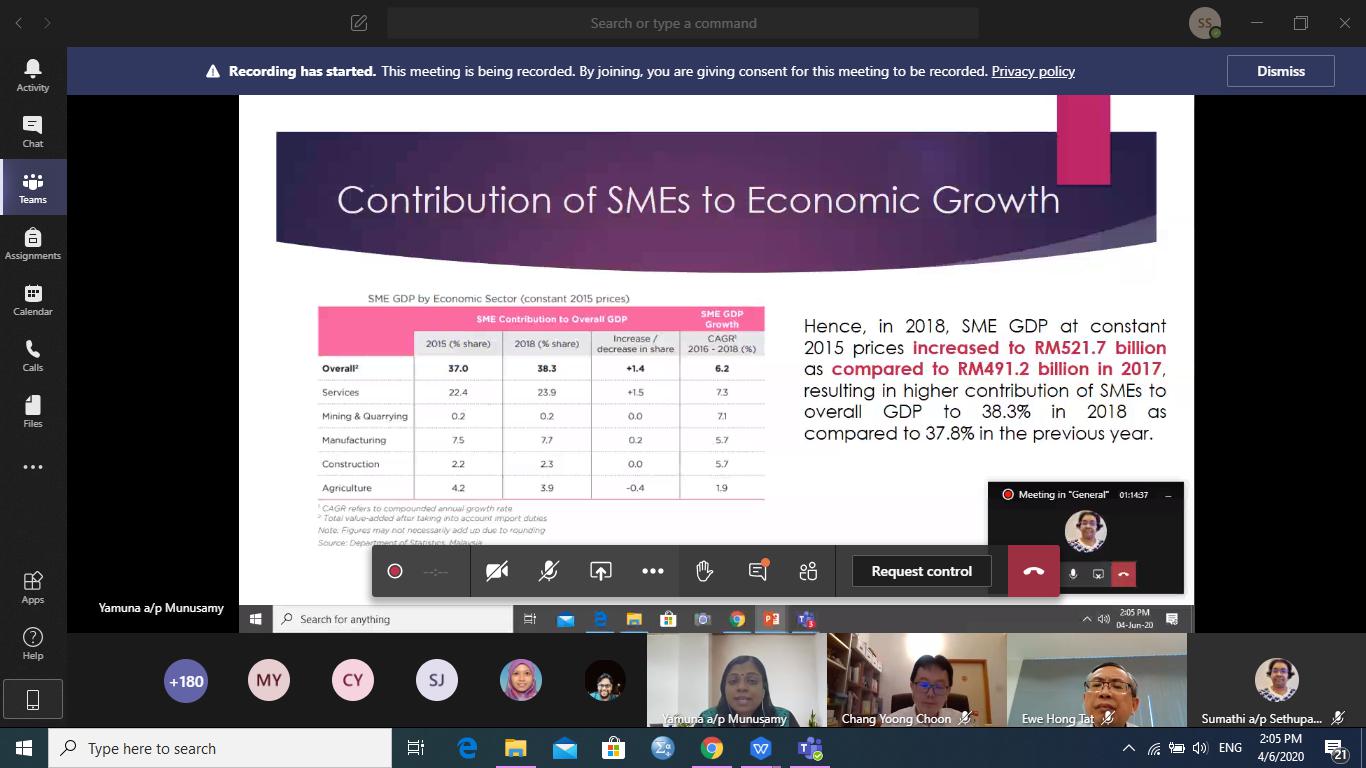
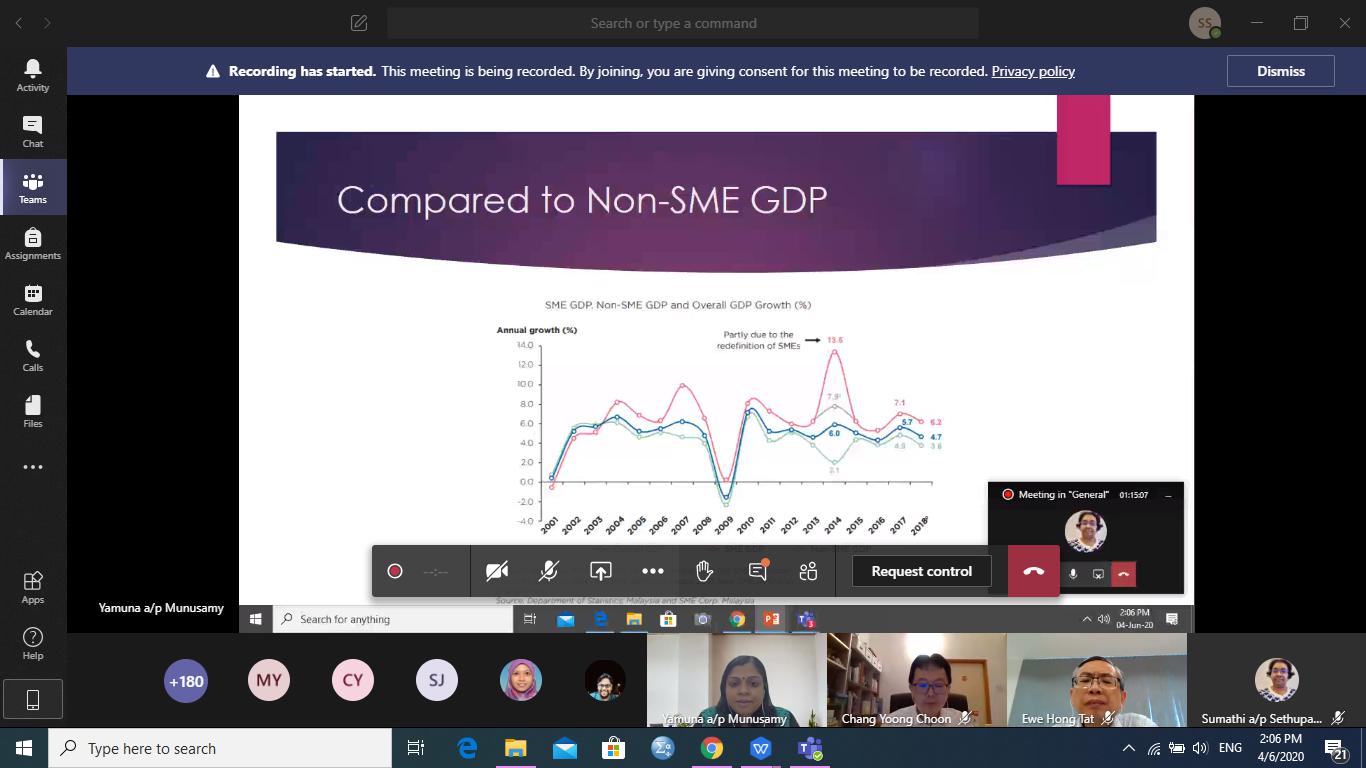
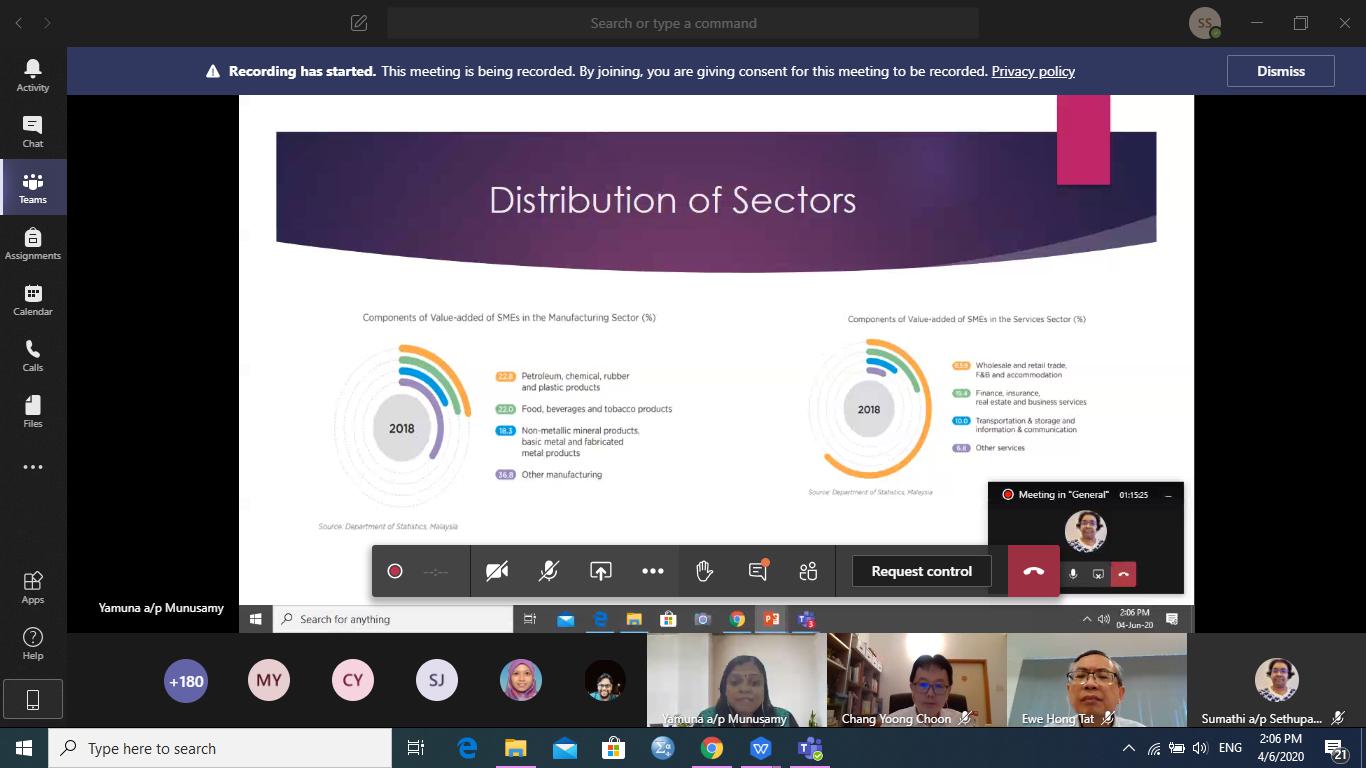
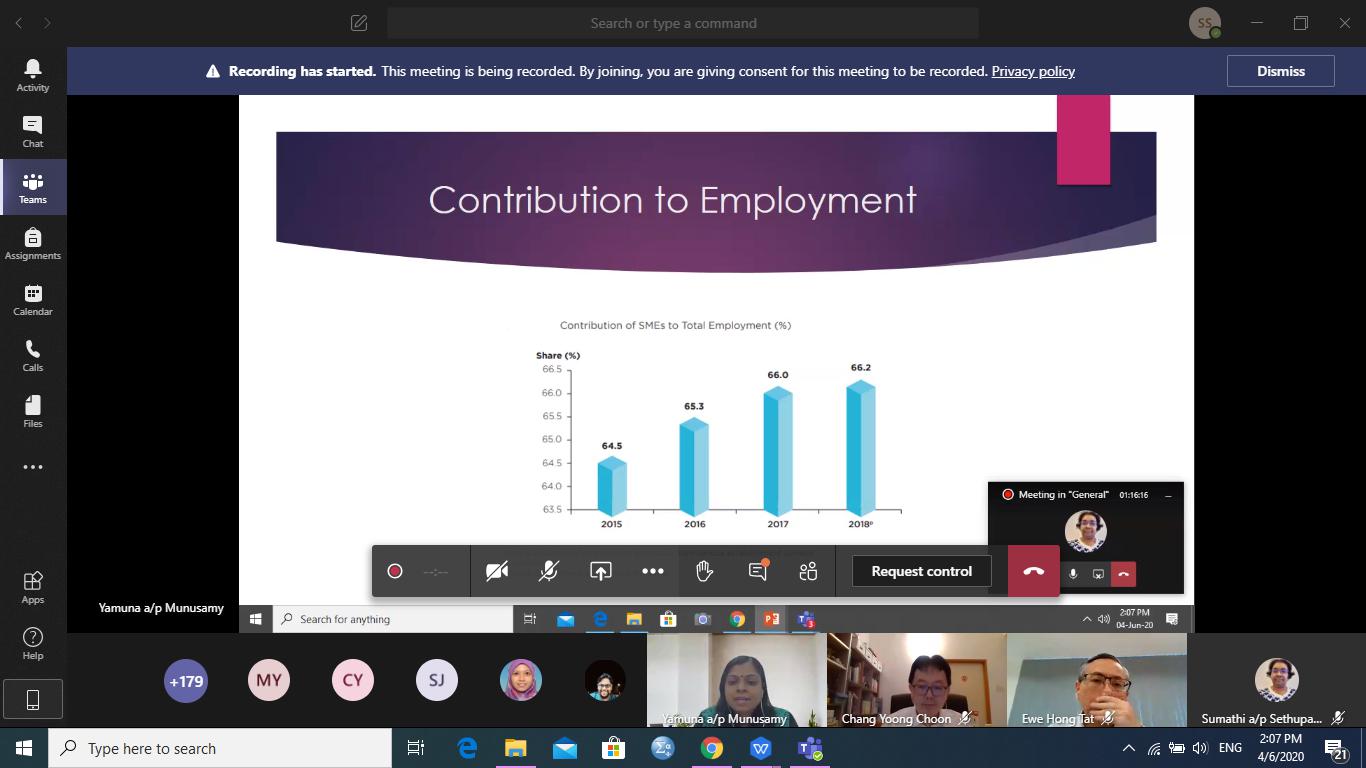
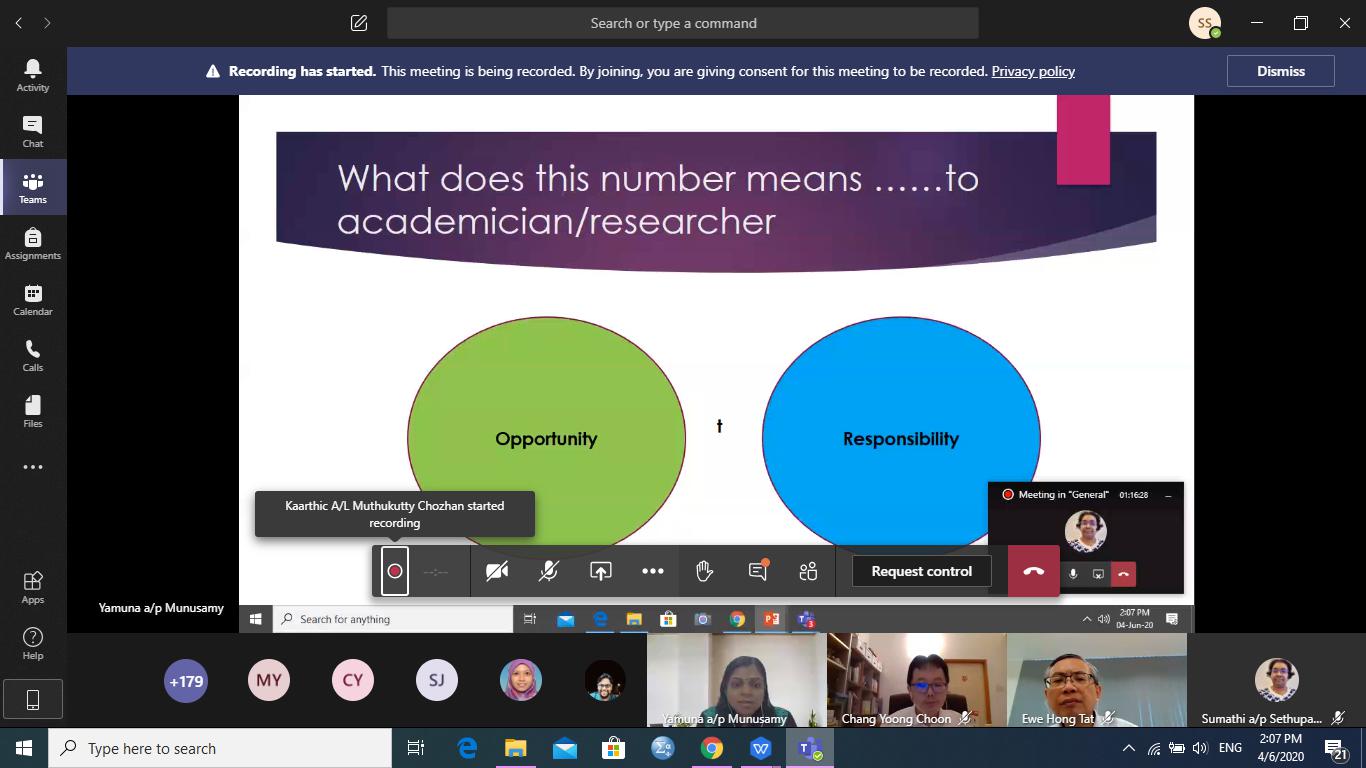
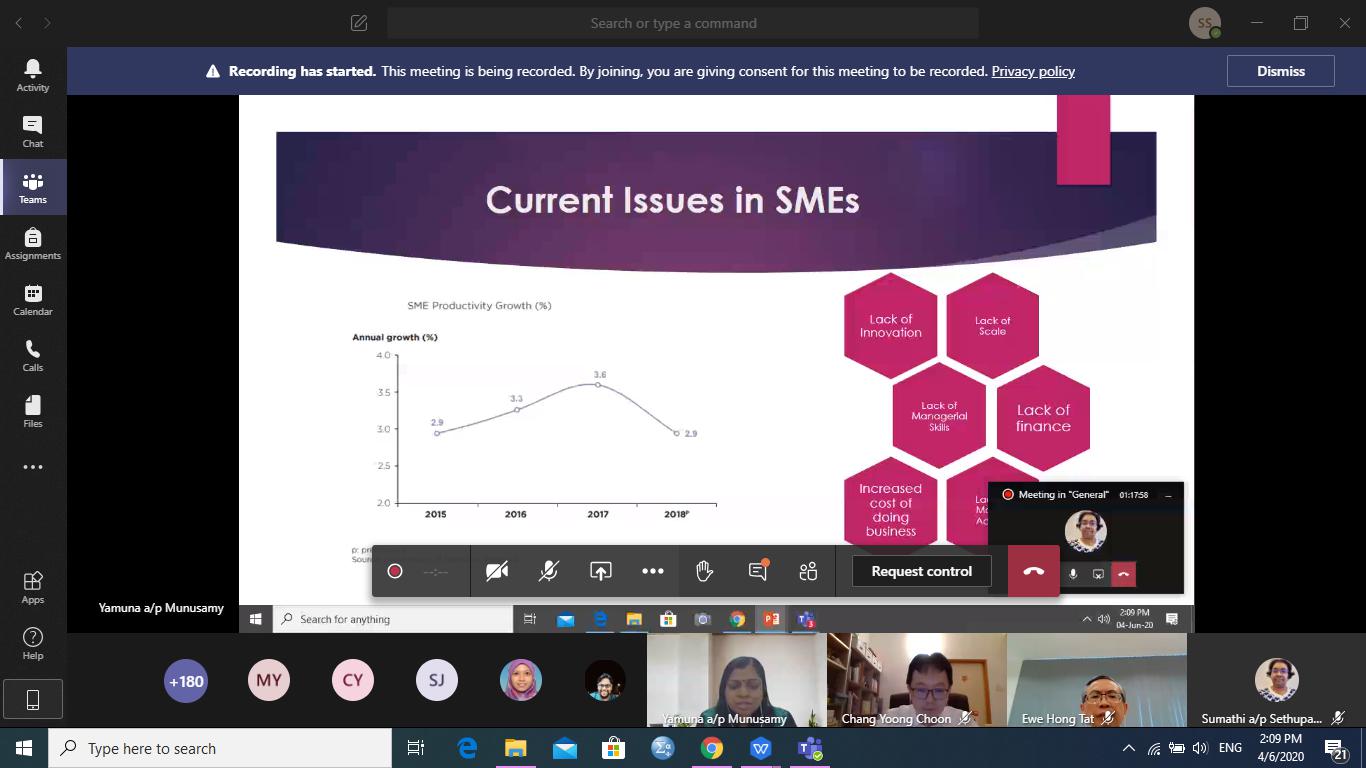
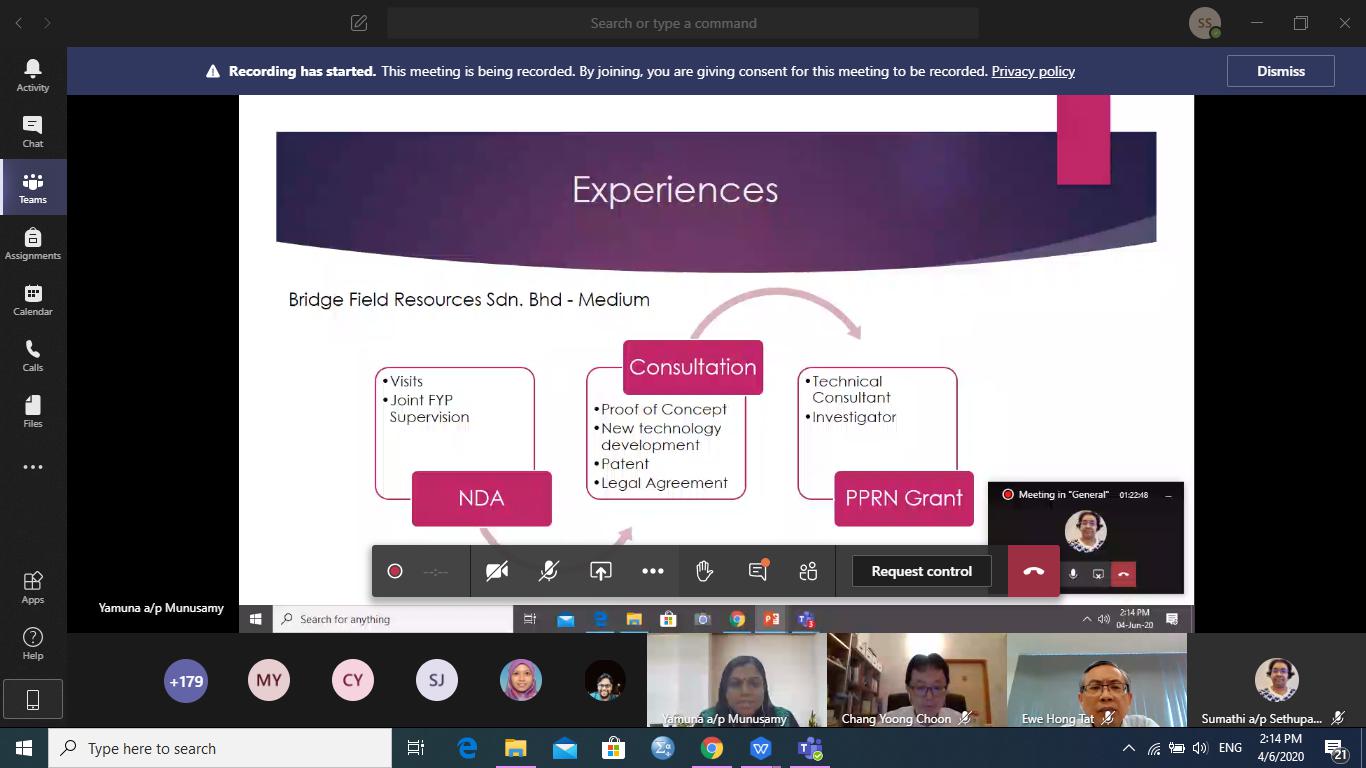
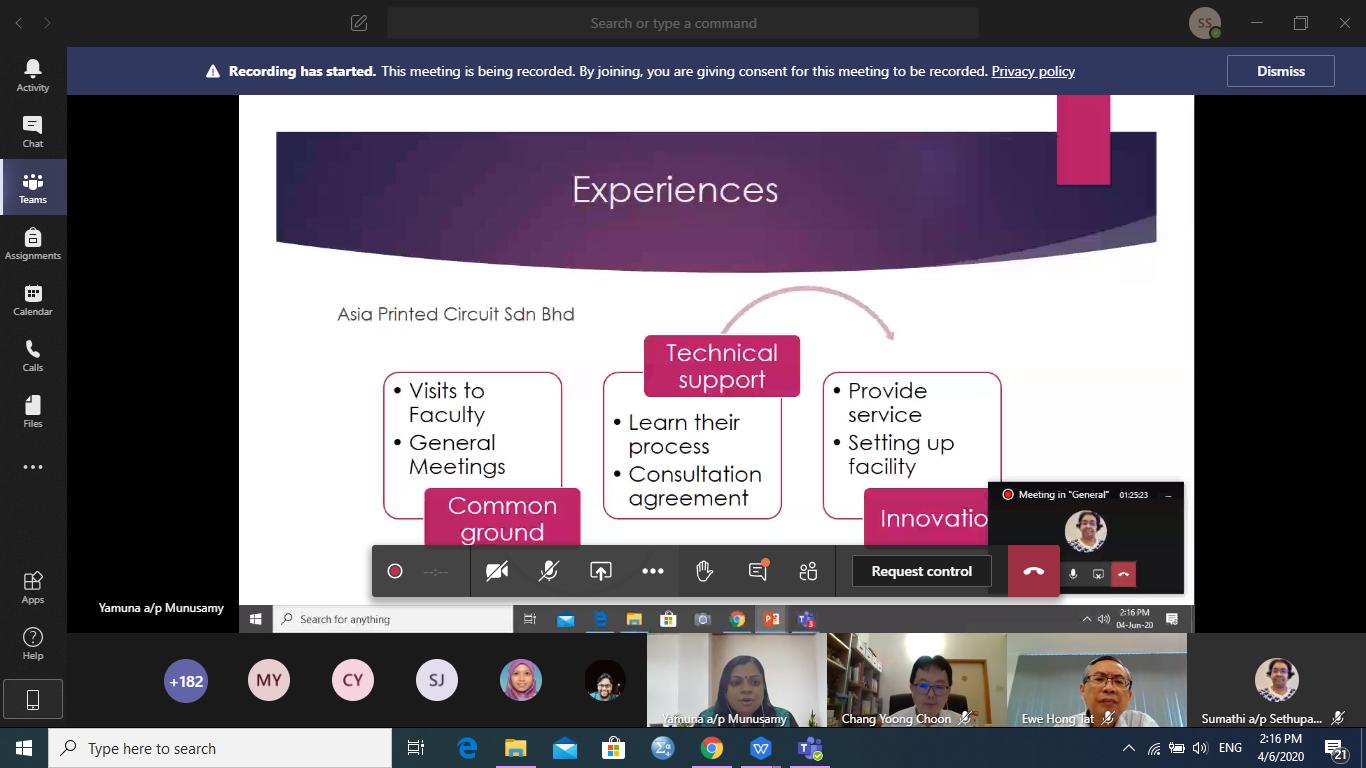
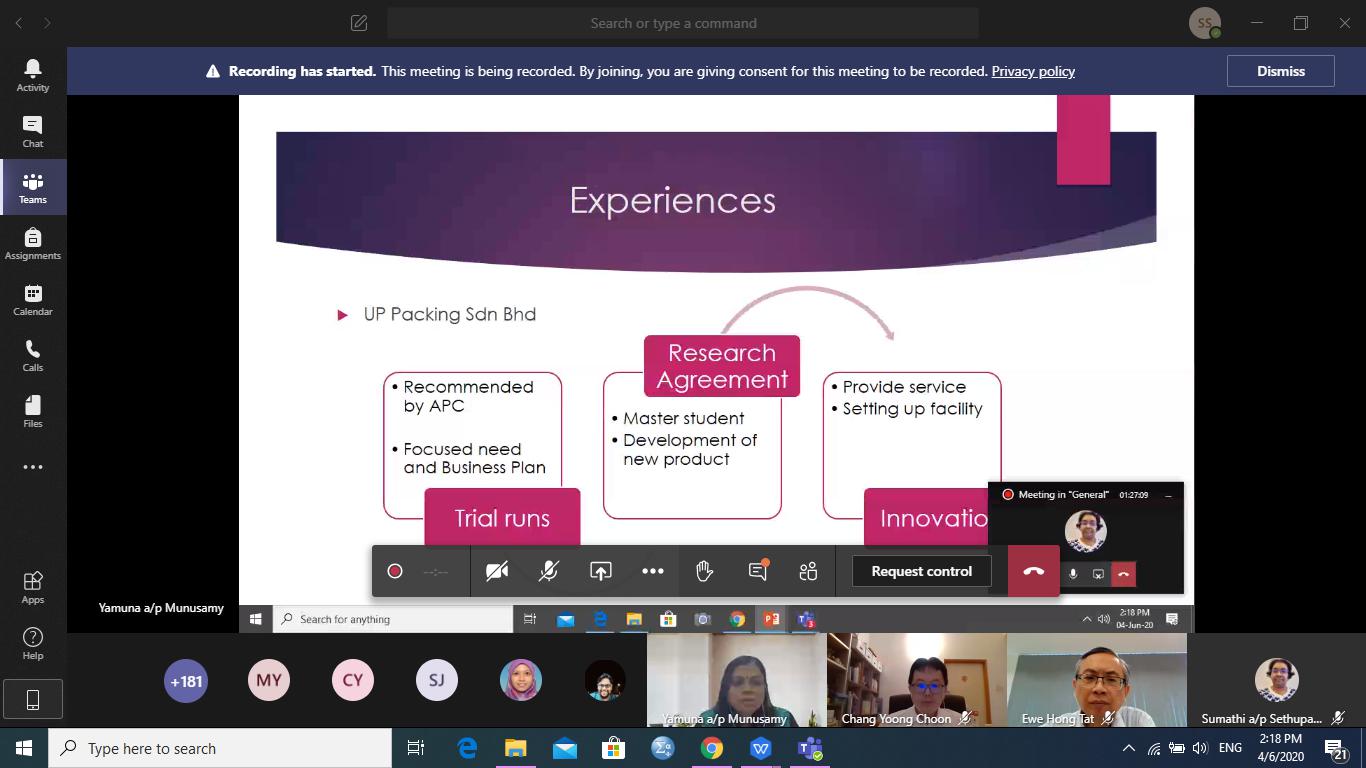
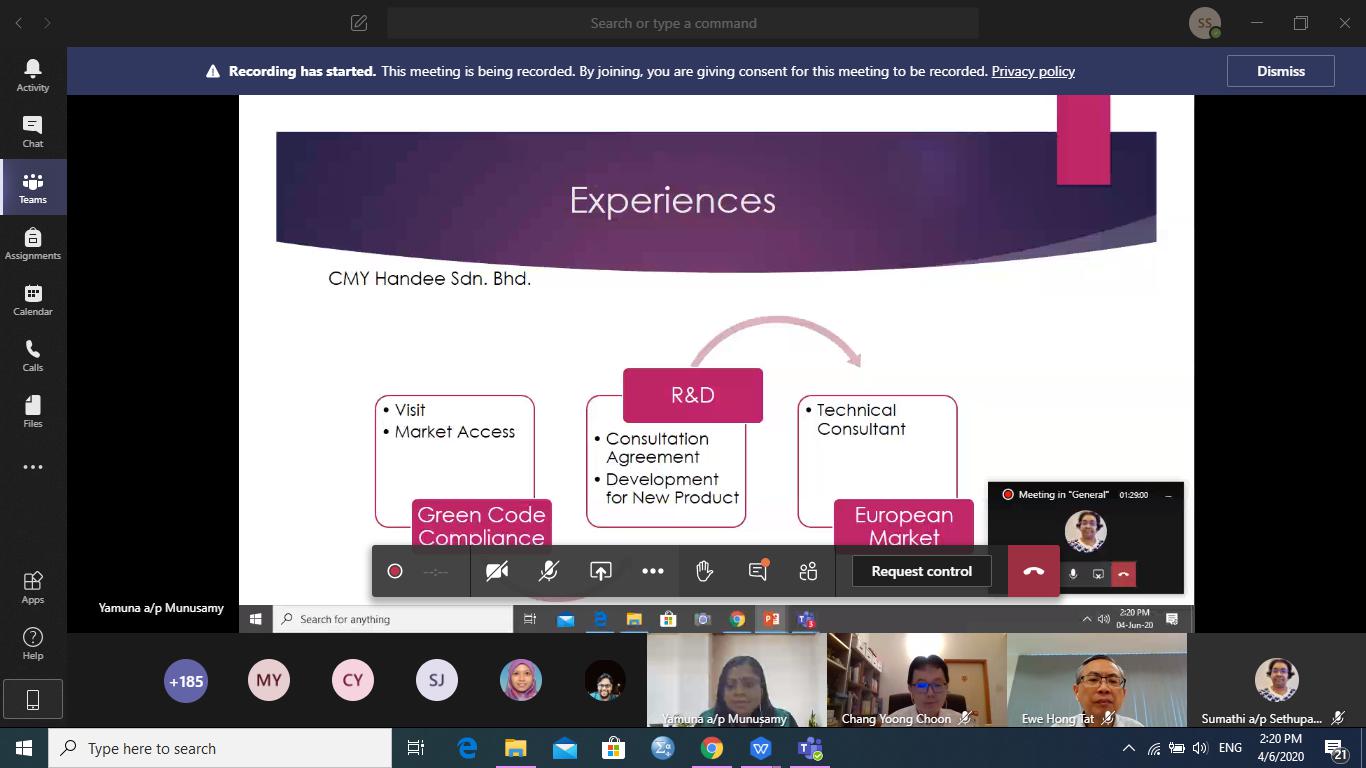
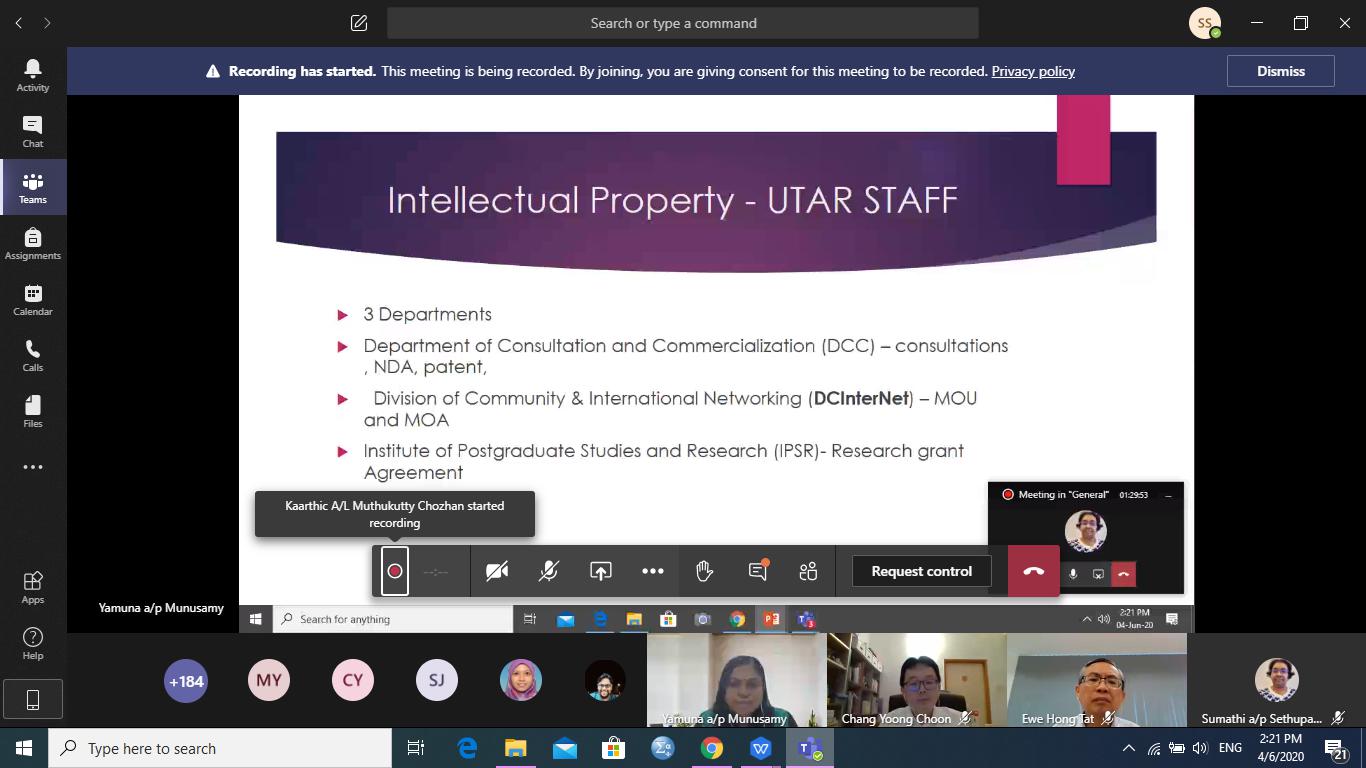
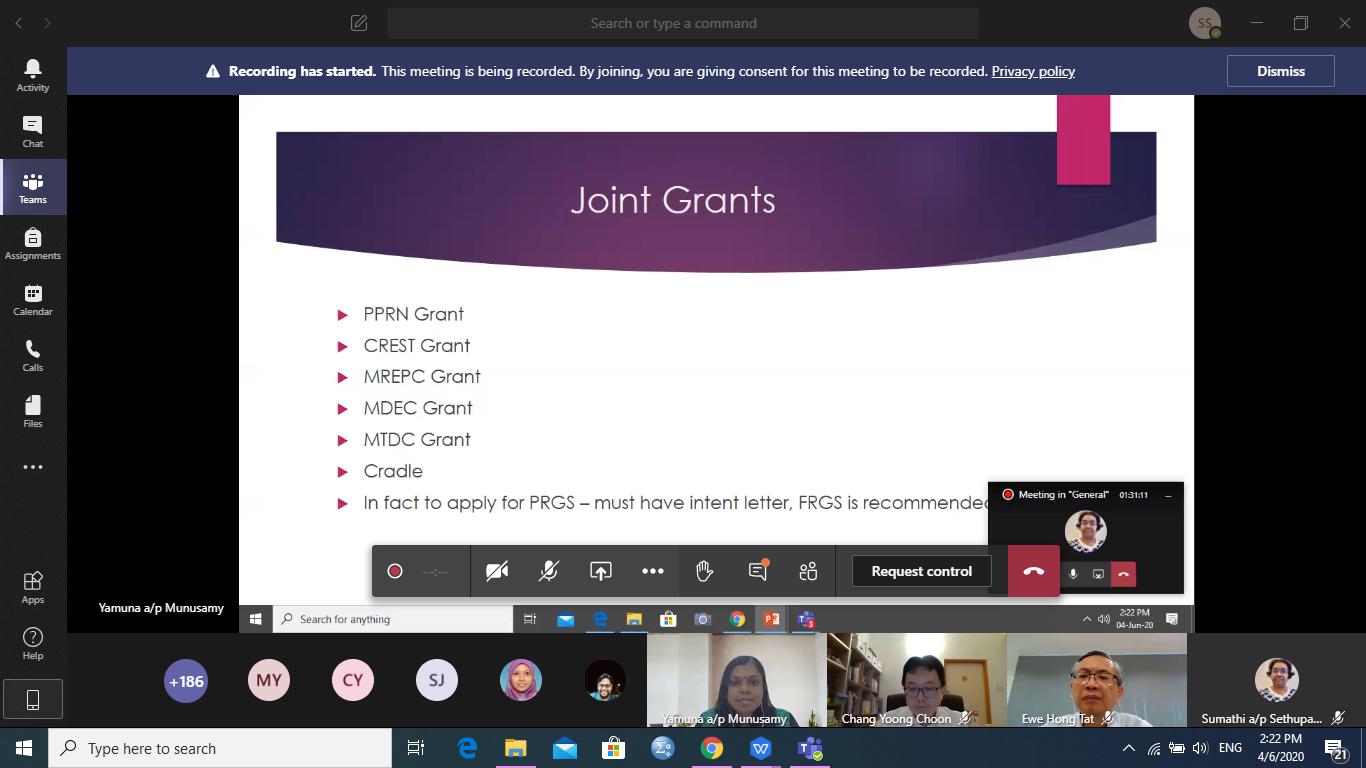
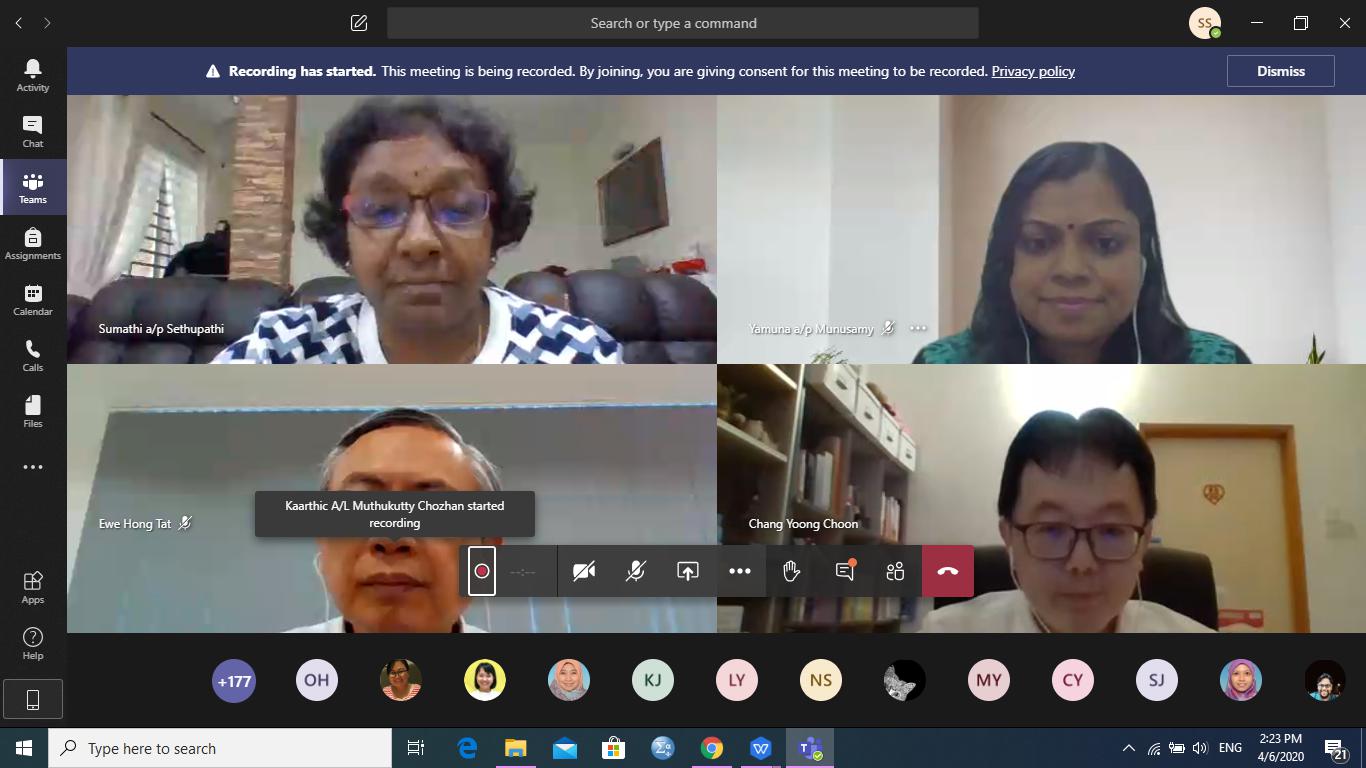
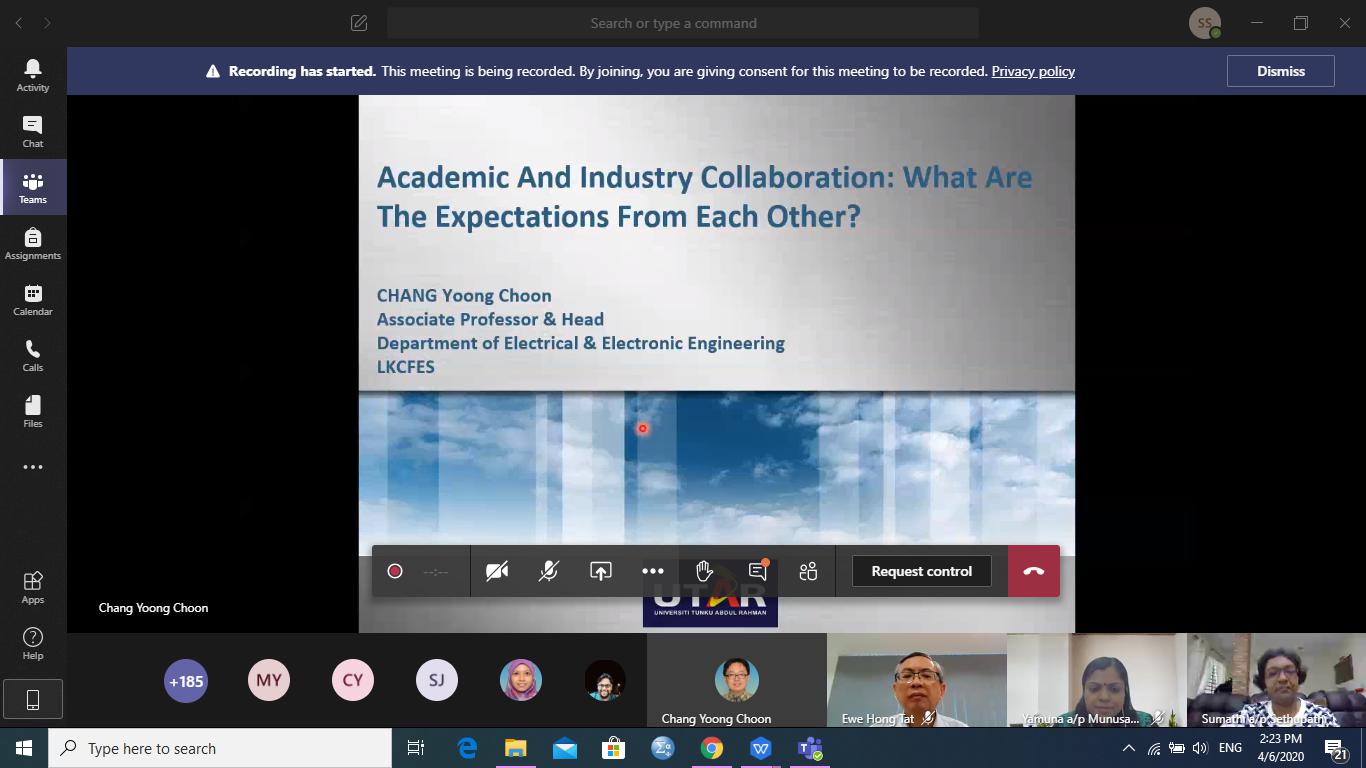
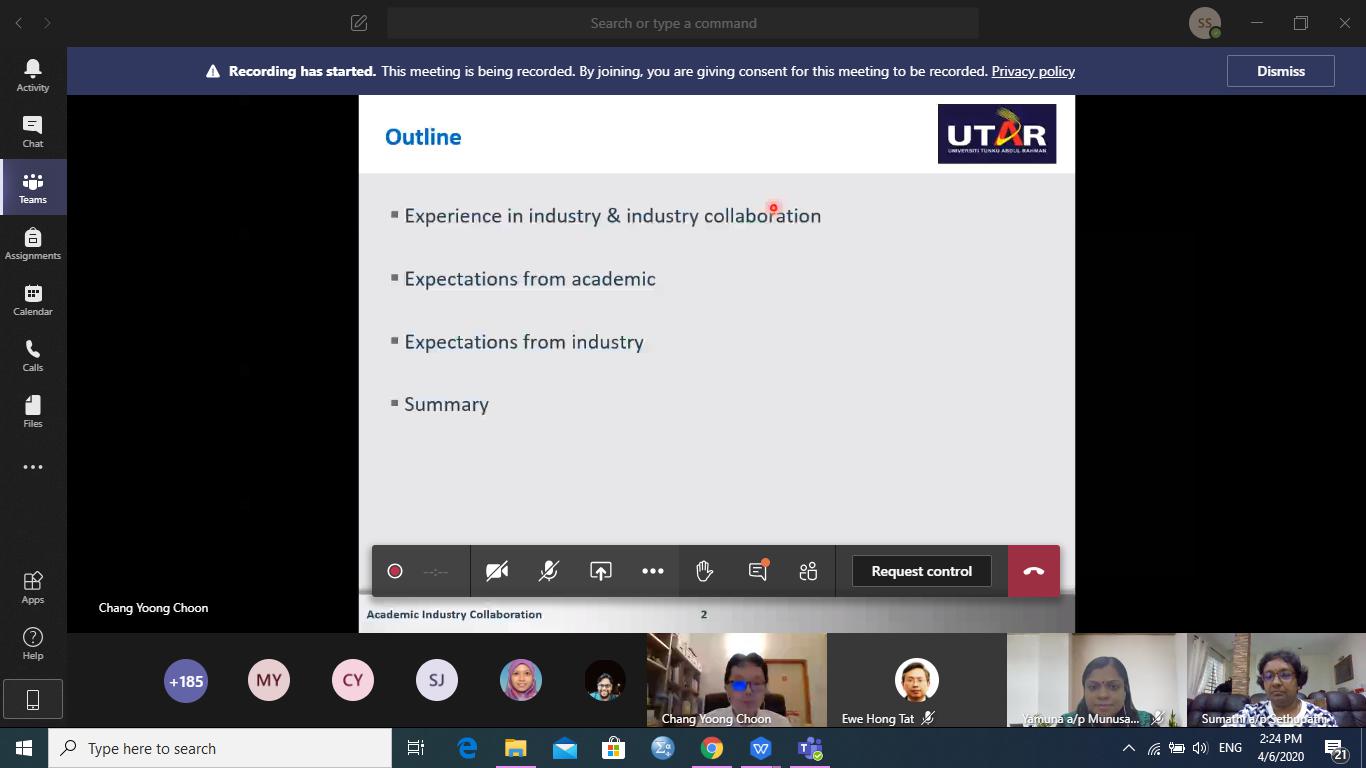
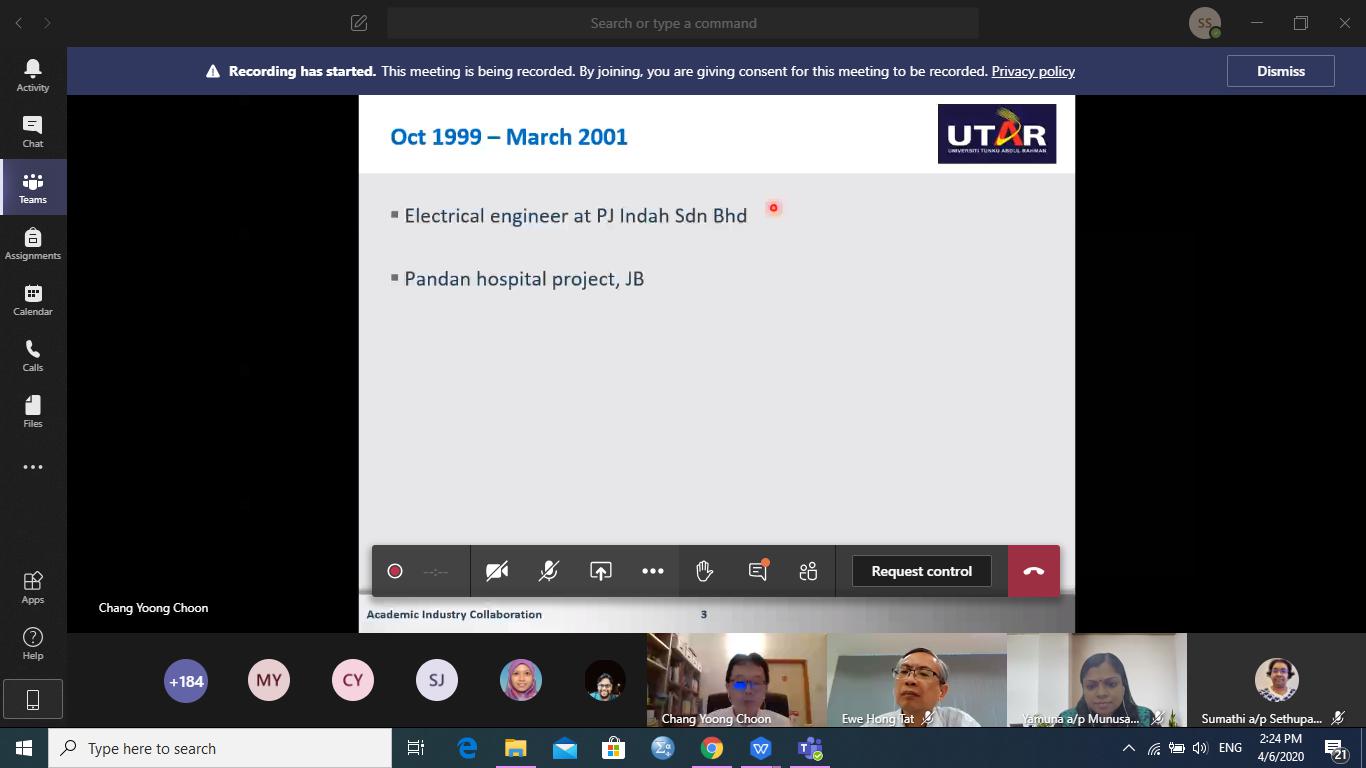
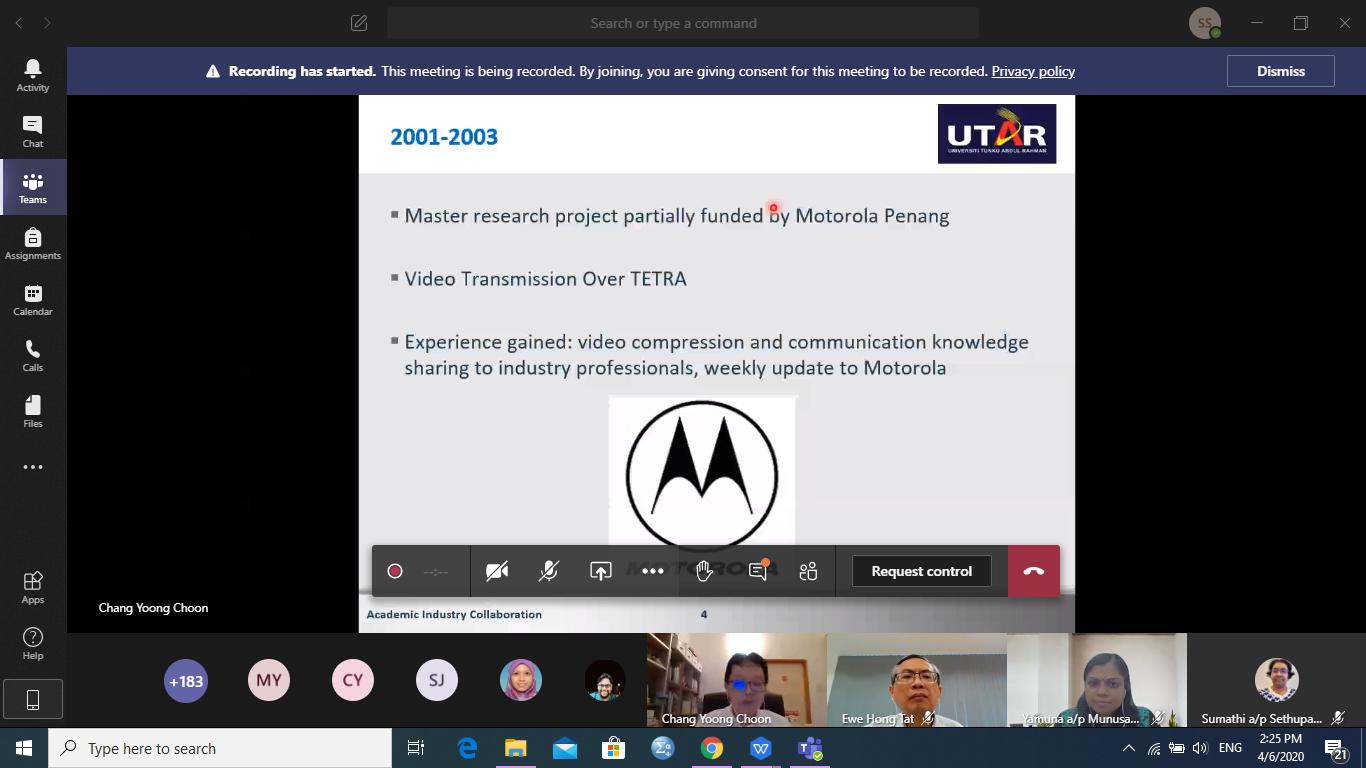
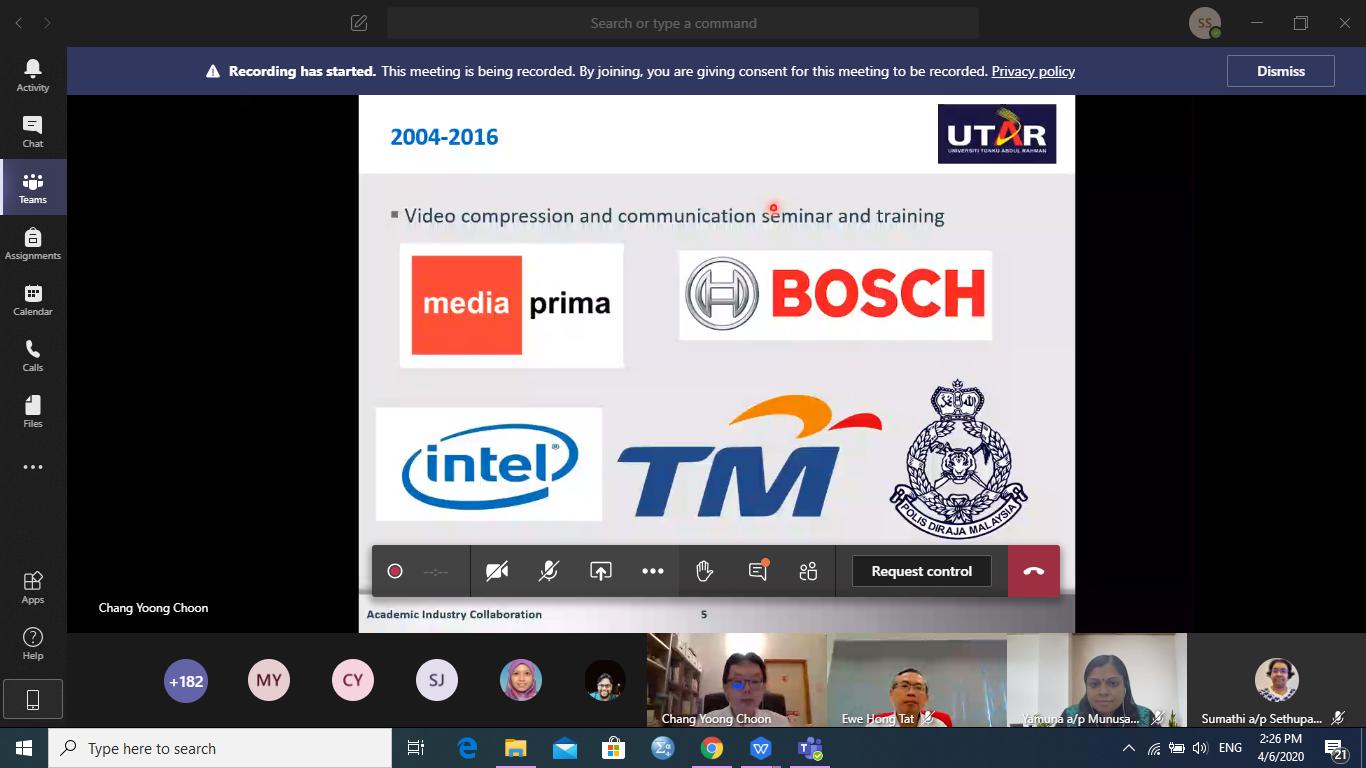
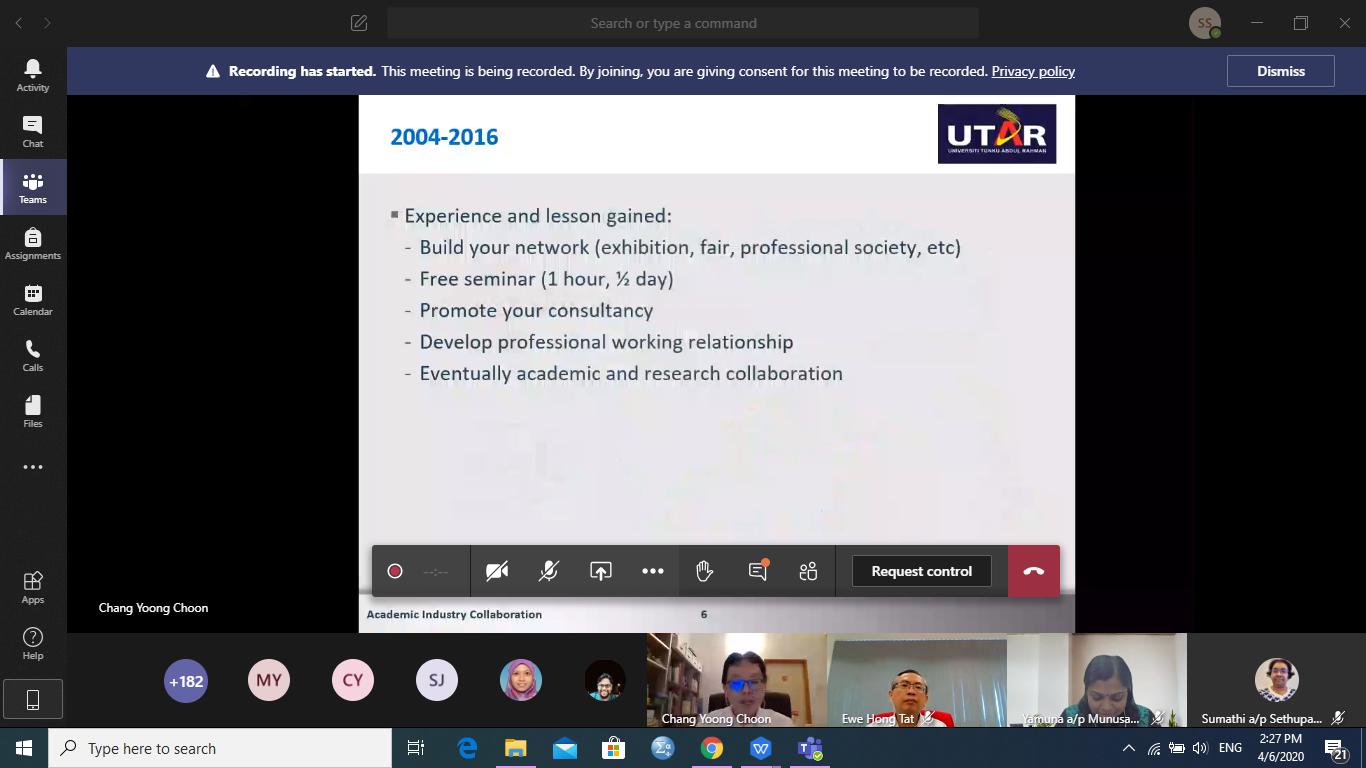
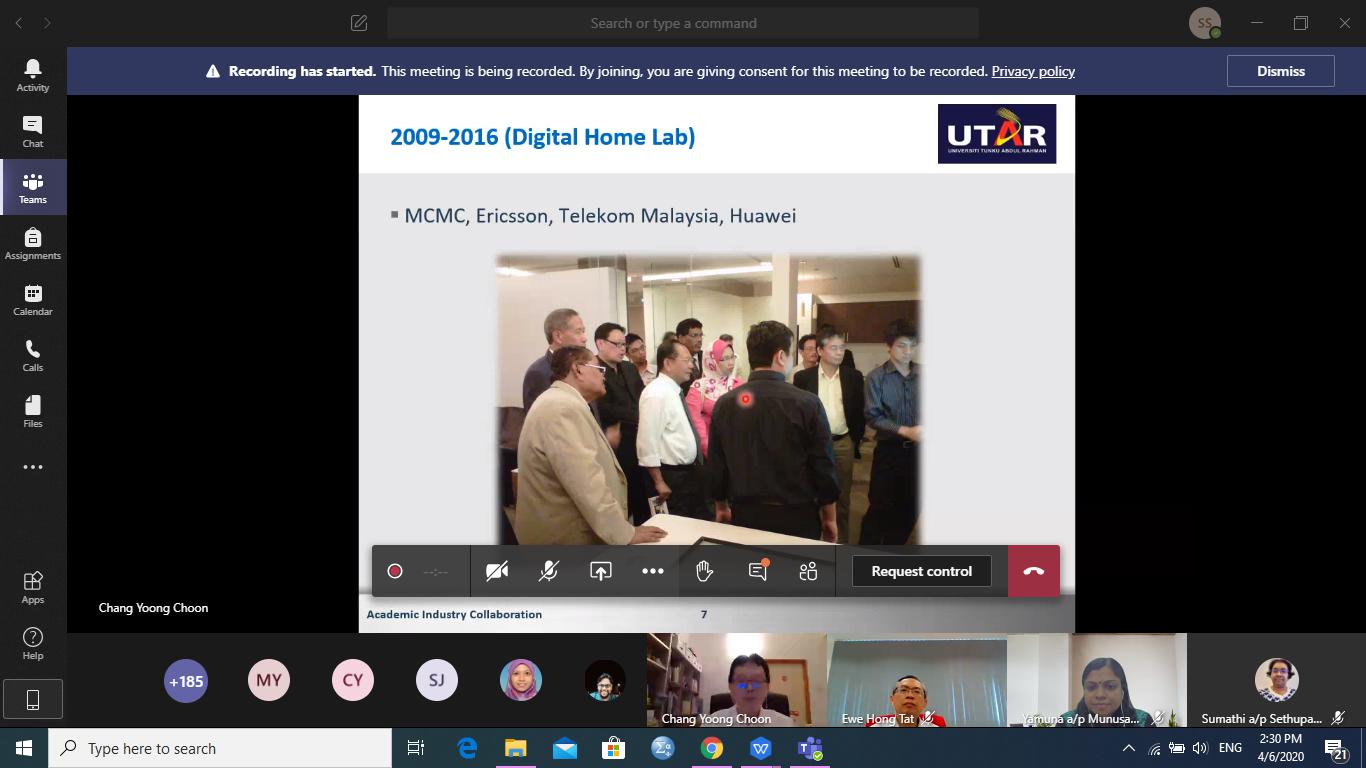
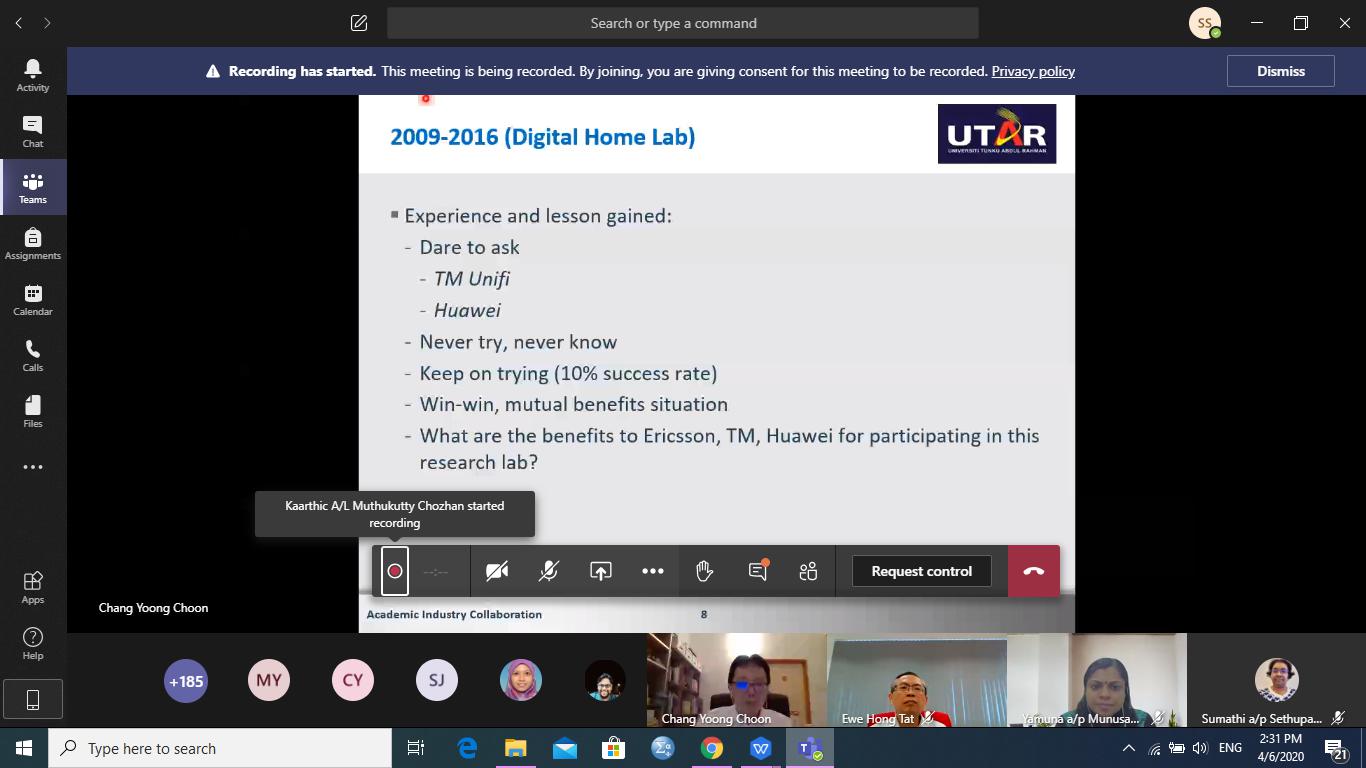
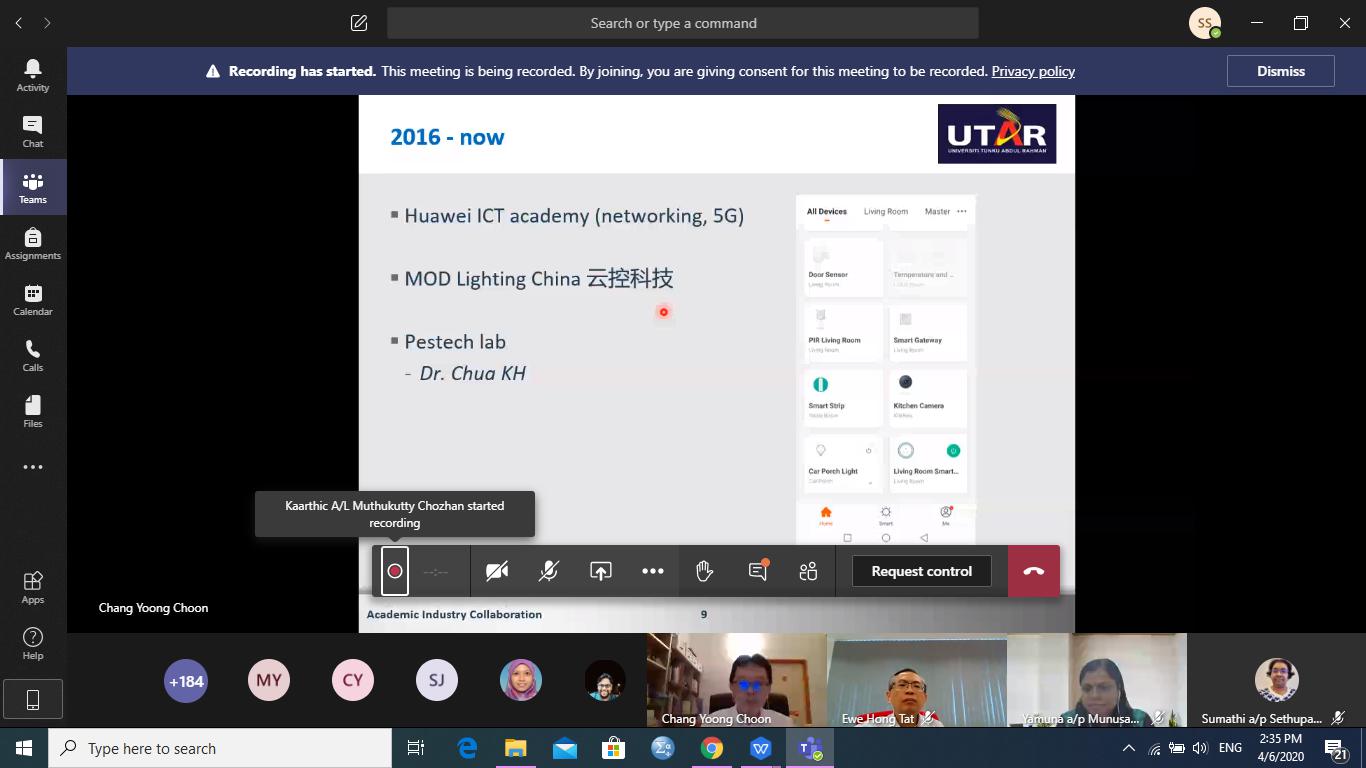
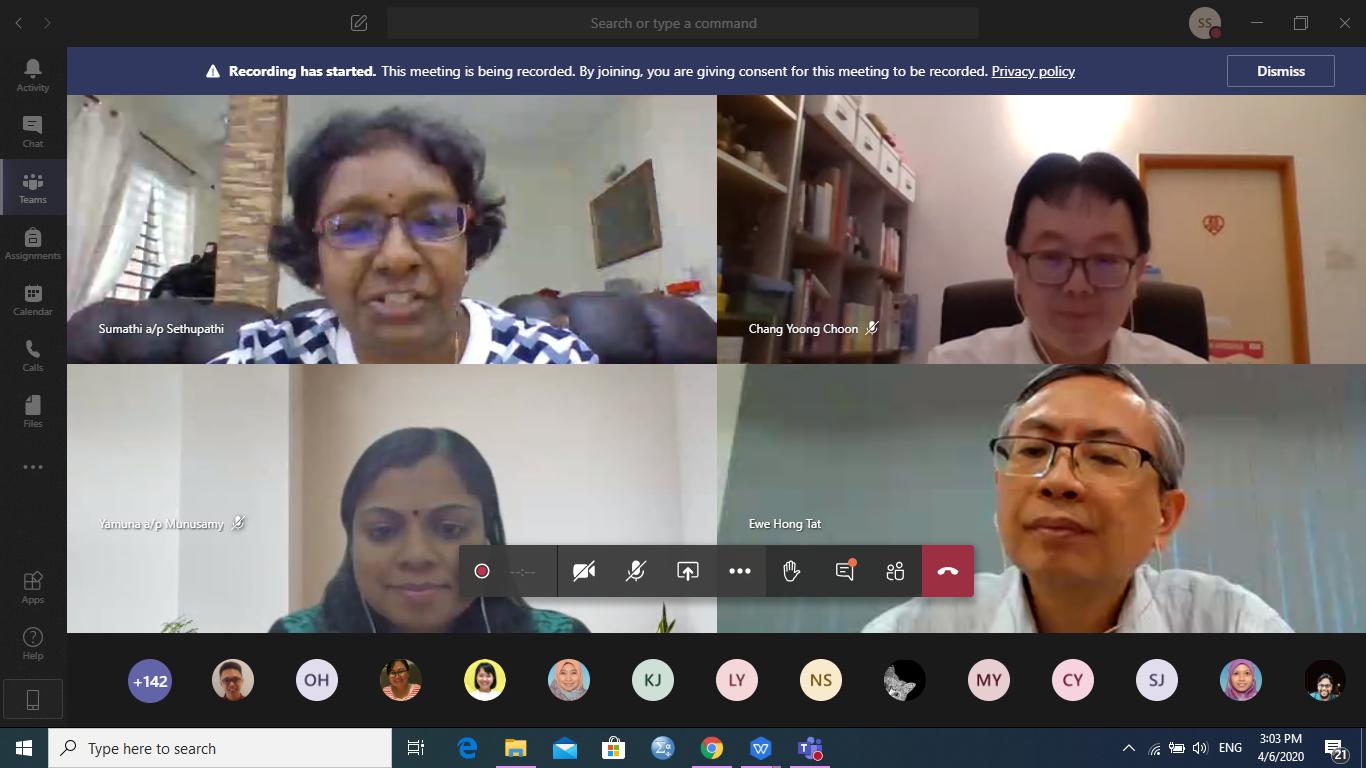
Some slides of the talks delivered by speakers
![]()
![]()
![]()
© 2020 UNIVERSITI TUNKU ABDUL RAHMAN DU012(A).
Wholly owned by UTAR Education Foundation Co. No. 578227-M LEGAL STATEMENT TERM OF USAGE PRIVACY NOTICE